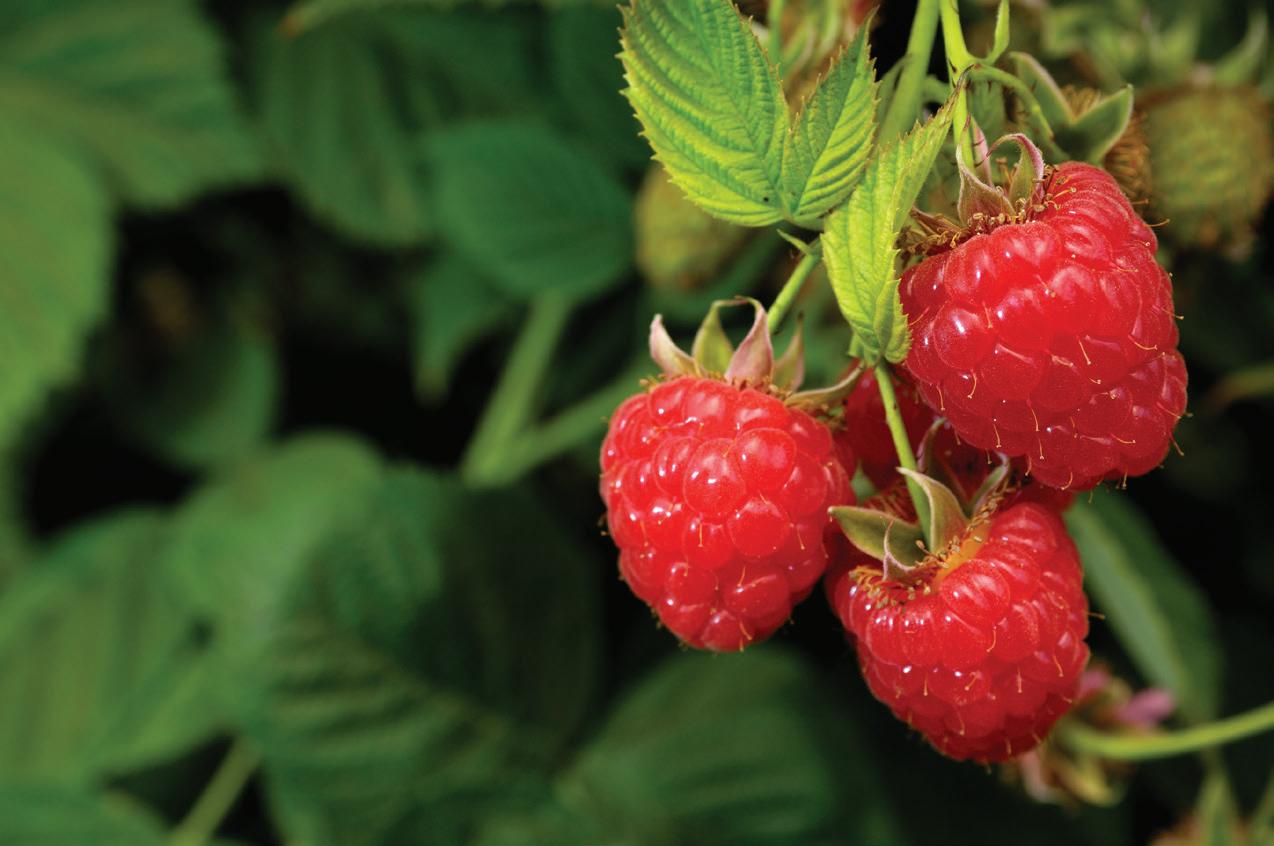
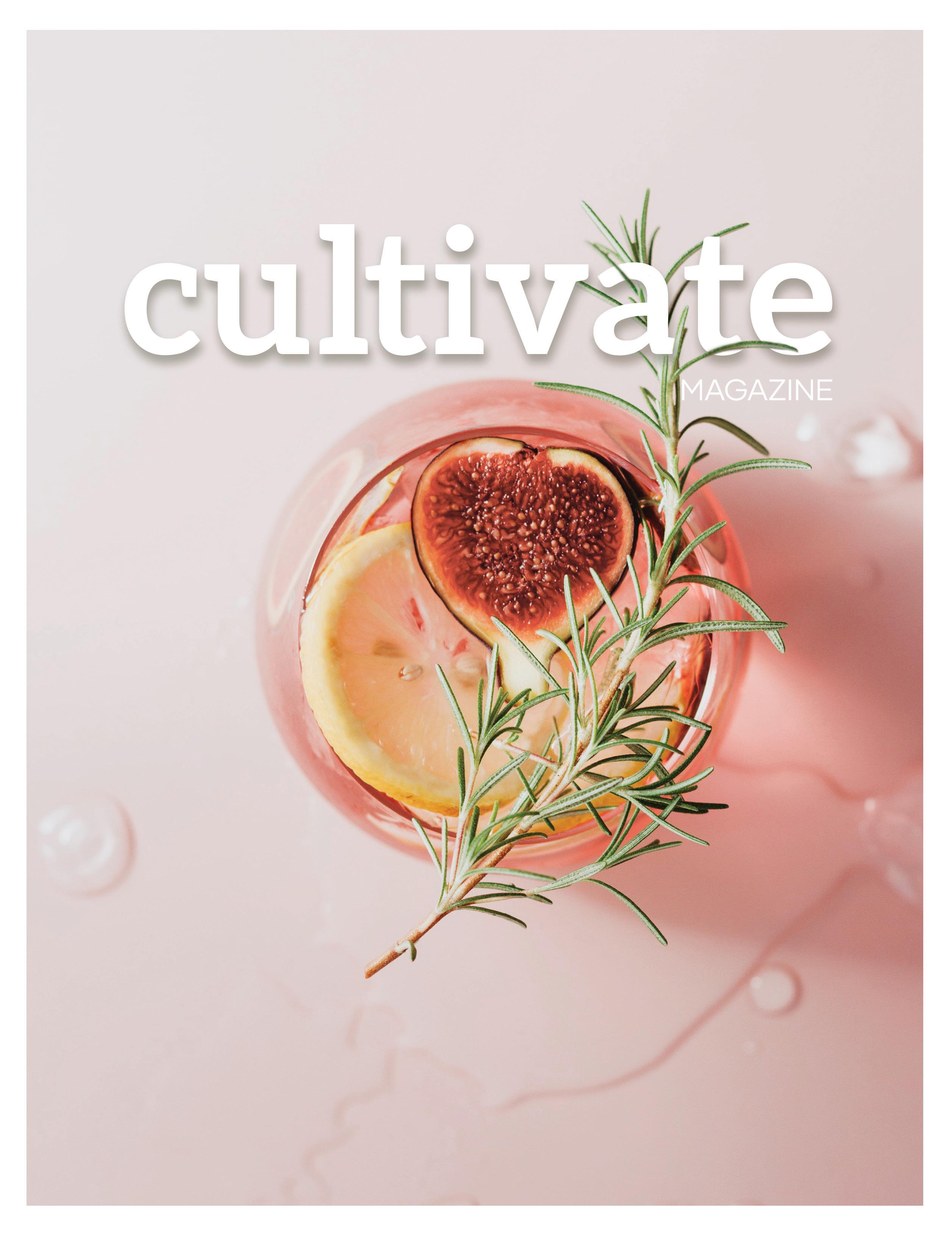
Exploring Food & Drink with BC Association of Farmers’ Markets & Wine Growers British Columbia
Regional Feature, The Okanagan Valley
From the Shore to Your Door, + more member stories
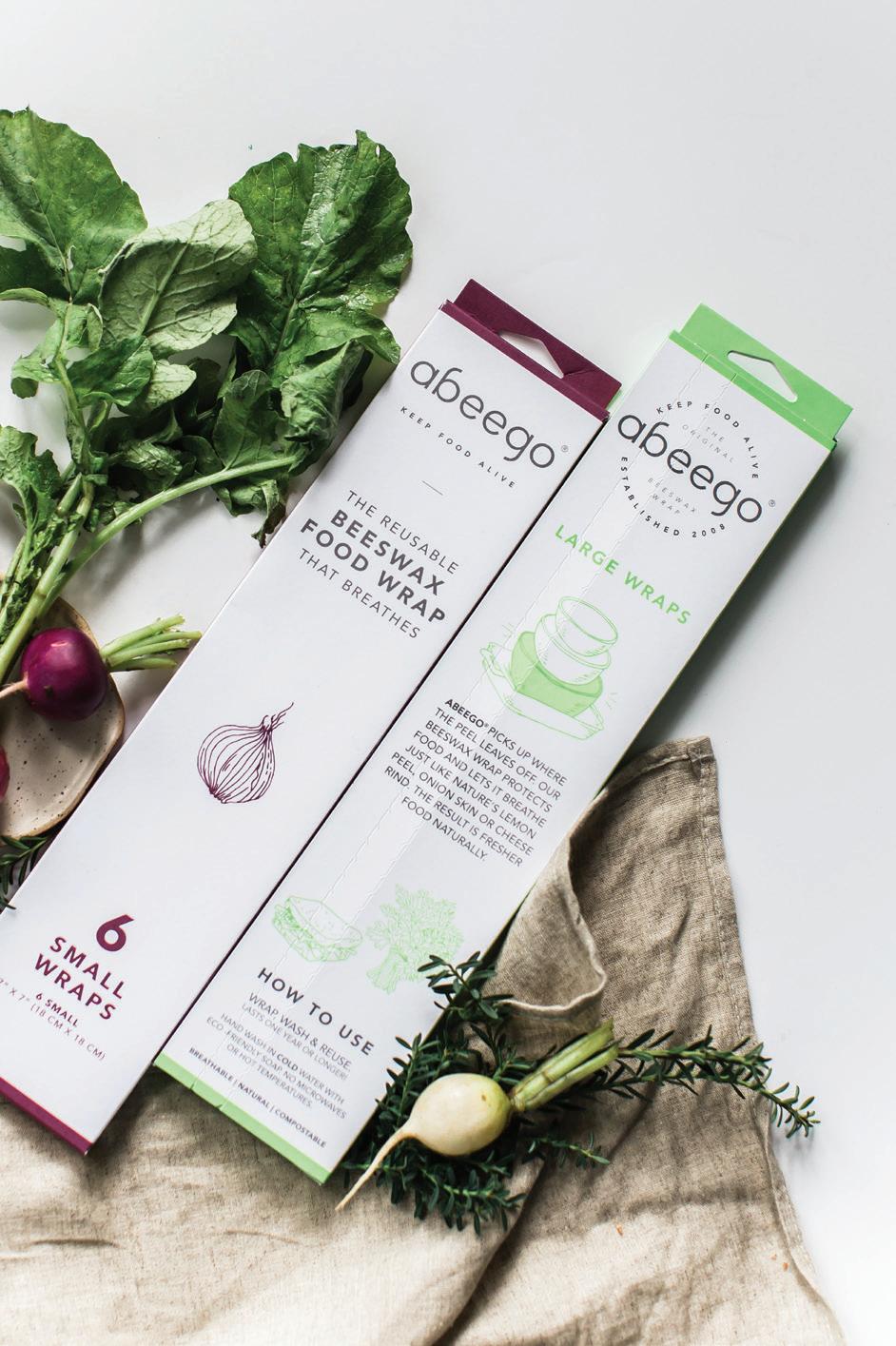




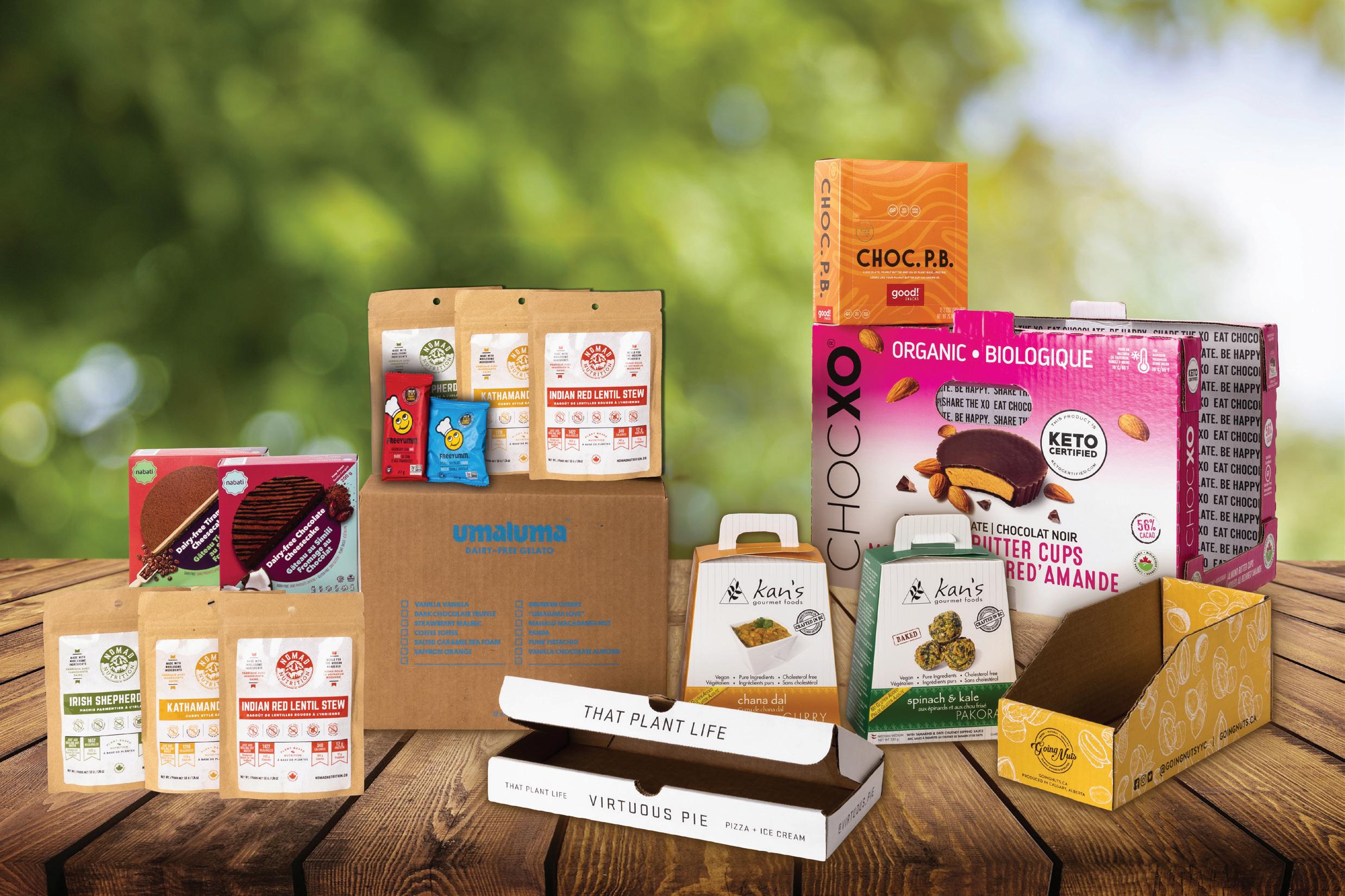




Exploring Food & Drink with BC Association of Farmers’ Markets & Wine Growers British Columbia
Regional Feature, The Okanagan Valley
From the Shore to Your Door, + more member stories







“I’m Karsten Schellhas and I’m on Reiser’s team of Alternative Protein Specialists. I work with customers to develop all their alternative protein products from bacon to burgers to bologna. I can help you every step of the way. Let me show you how.”
Karsten: (604) 897-1026
Email: kschellhas@reiser.com Veggie Hotline: (781) 821-1290 Visit our Alternative Protein website
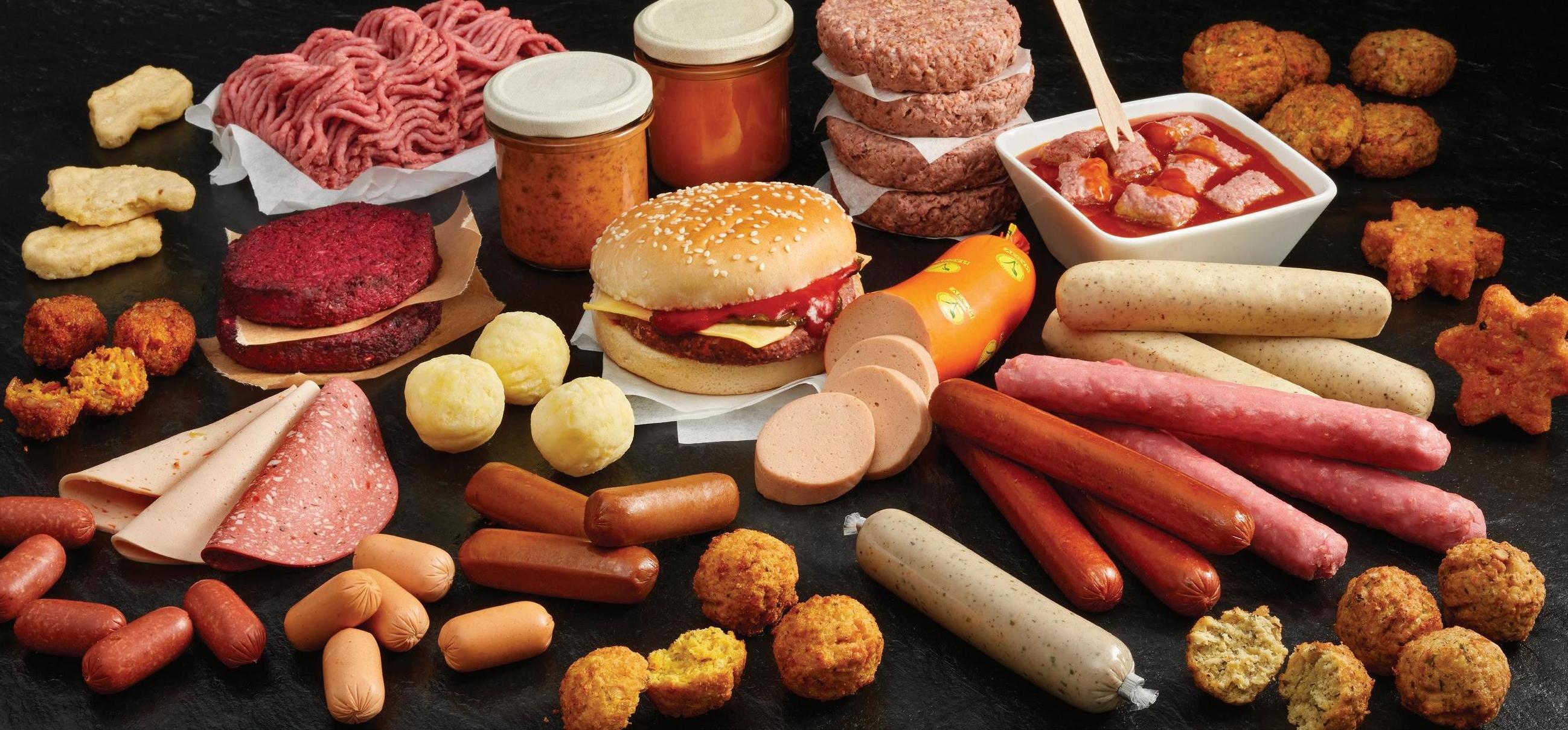
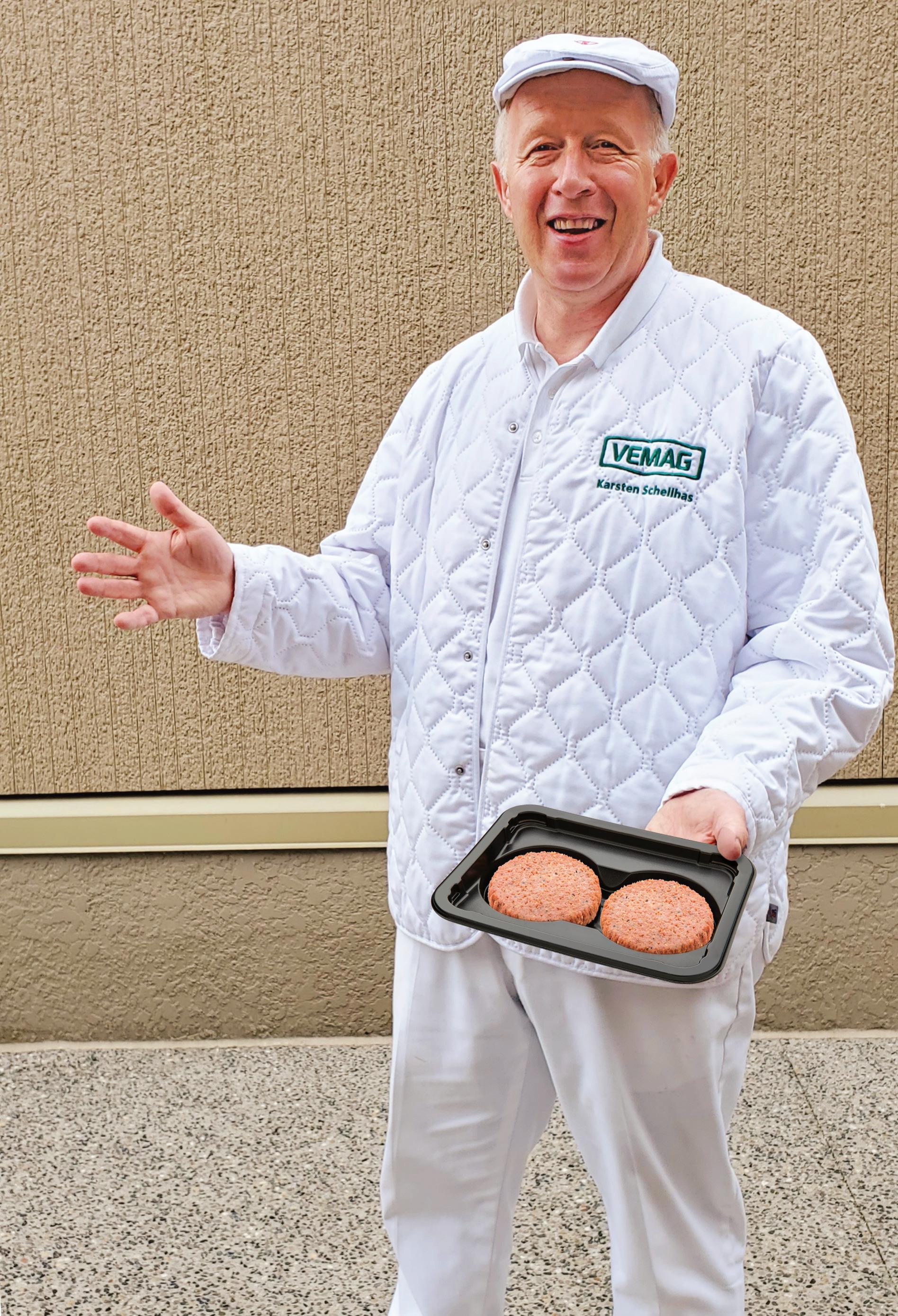



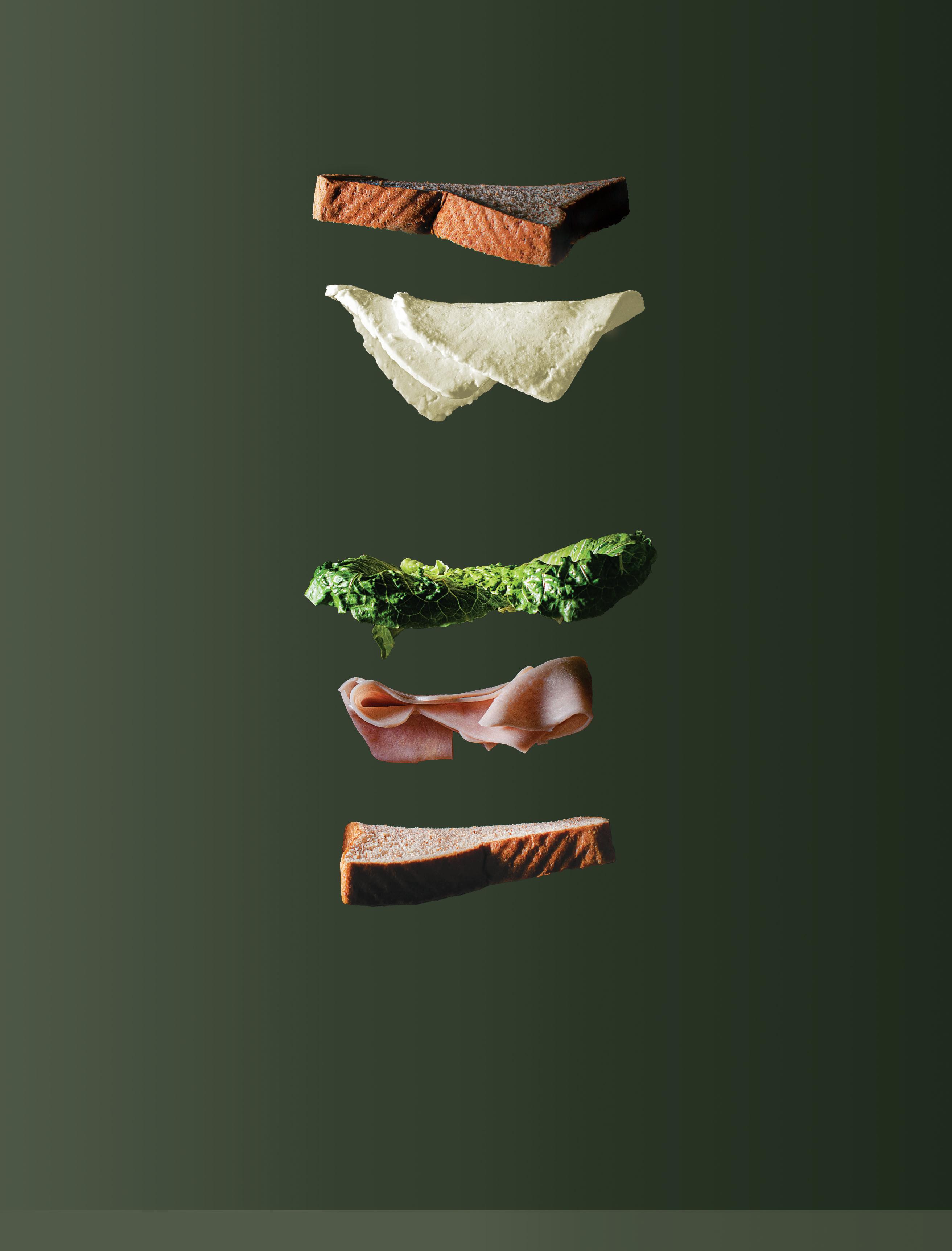
Missing that secret ingredient? Don’t be a dry sandwich, add some mustard to your food or beverage business by becoming a BCFB member. Join today bcfb.ca

A RETURN TO ‘NORMAL’, we think about it, sometimes we might even dream about it. It has been so long; do we even remember what it feels like? It does seem like forever since we have been able to experience the simple pleasures, we once took for granted, like spending time with family and friends.
But now, after the longest year imaginable, we are starting to think about normalcy once again. The availability of vaccines – including priority access to essential workers for our industry – is allowing a splinter of optimism to creep in. And it feels good, doesn’t it?
I have been incredibly inspired by the resiliency of our industry over this past year. I believe that a new level of appreciation for food and beverage processors has emerged. Just as many people took their freedom for granted prior to the pandemic, many have discovered a new appreciation for where our food comes from. To remember a time where empty store shelves were experienced, we would have to go back to the Great Depression. But last year’s empty shelves (and yes, toilet paper too) were only temporary, as the industry found a way forward, and in many cases even thrive.
In this Spring issue of Cultivate, we celebrate a hopeful return to normal –enjoying the Farmers Market on a sunny afternoon, exploring the Okanagan; taking in one of BC’s amazing wineries or 2 (or 3), better yet, hosting those you love in your home, to celebrate and enjoy some of BC’s amazing products.
Whatever normal is going to look like for each of us, time will tell. Perhaps things will never fully go back to the way they were. Without a doubt, this past year has been a time of growth and learning.
However it looks for you, I hope you'll join us in celebrating this beautiful province and all the amazing people that we share it with.
Enjoy!
James Donaldson, BC Food & Beverage CEO
NEW YEAR!
8 PEER GROUP MEETINGS
VIRTUAL TOWNHALL
Navigating the Canadian Retail & Foodservice Landscape

BCFB HOSTED PARTNER EVENTS
• How to Apply for the Small Business Recovery Grant, with the BC Ministry of Agriculture, Food & Fisheries
• COVID-19 Vaccine: Prevention, Enforcement, and Labour Law, with Manufacturing Safety Alliance of BC
february
Digital cultivate magazine available on ISSUU
PEER GROUP MEETING
Digital Transformation in Food and Beverage: Be the Distruptor, don’t be Disrupted presented by MNP june
BCFB AWARDS NOMINATIONS CLOSE - MAY 31ST
VIRTUAL LEARNING CENTRE LAUNCH
An online education resource for BCFB members
8 PEER GROUP MEETINGS may

BCFB ANNUAL GENERAL MEETING
BCFB AWARDS FINALISTS ANNOUNCED
BCFB virtual events, highlights and meetings for 2021
Visit our online event calendar for details bcfb.ca/events
8 PEER GROUP MEETINGS
BCFB
SAVE THE DATE FoodProWest 2021 November 23rd
8 PEER GROUP MEETINGS

PRODUCT OF THE YEAR COMPETITION FILMING Sponsored by MNP
BCFB HOSTED PARNTER EVENTS
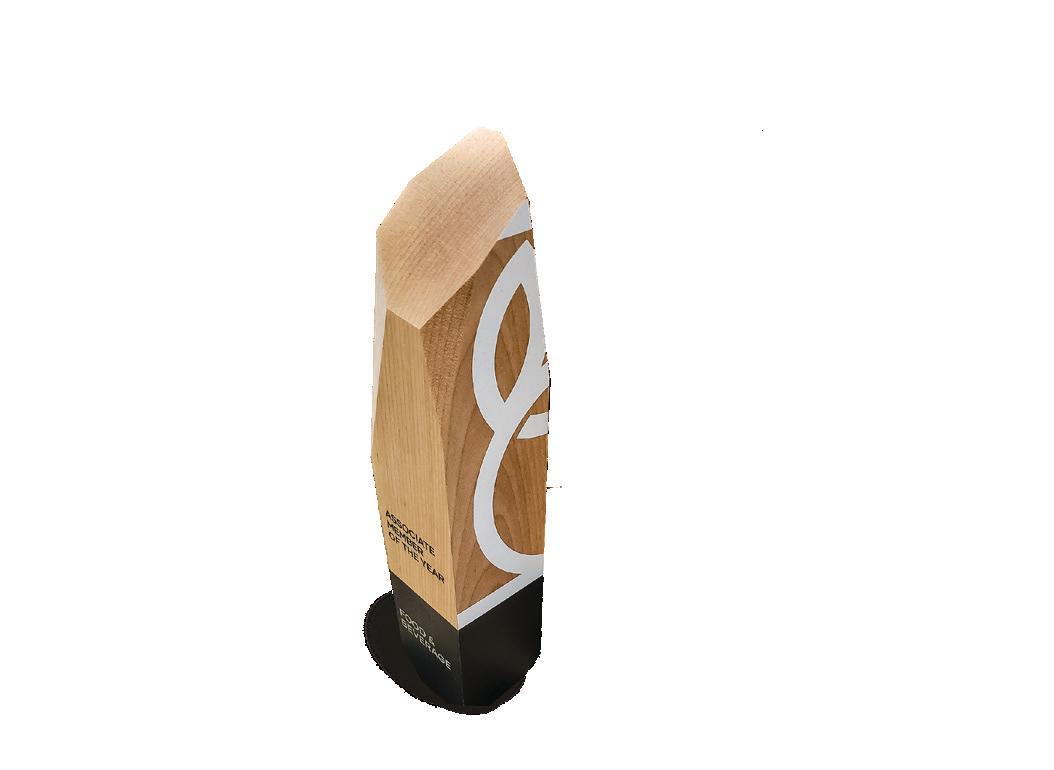
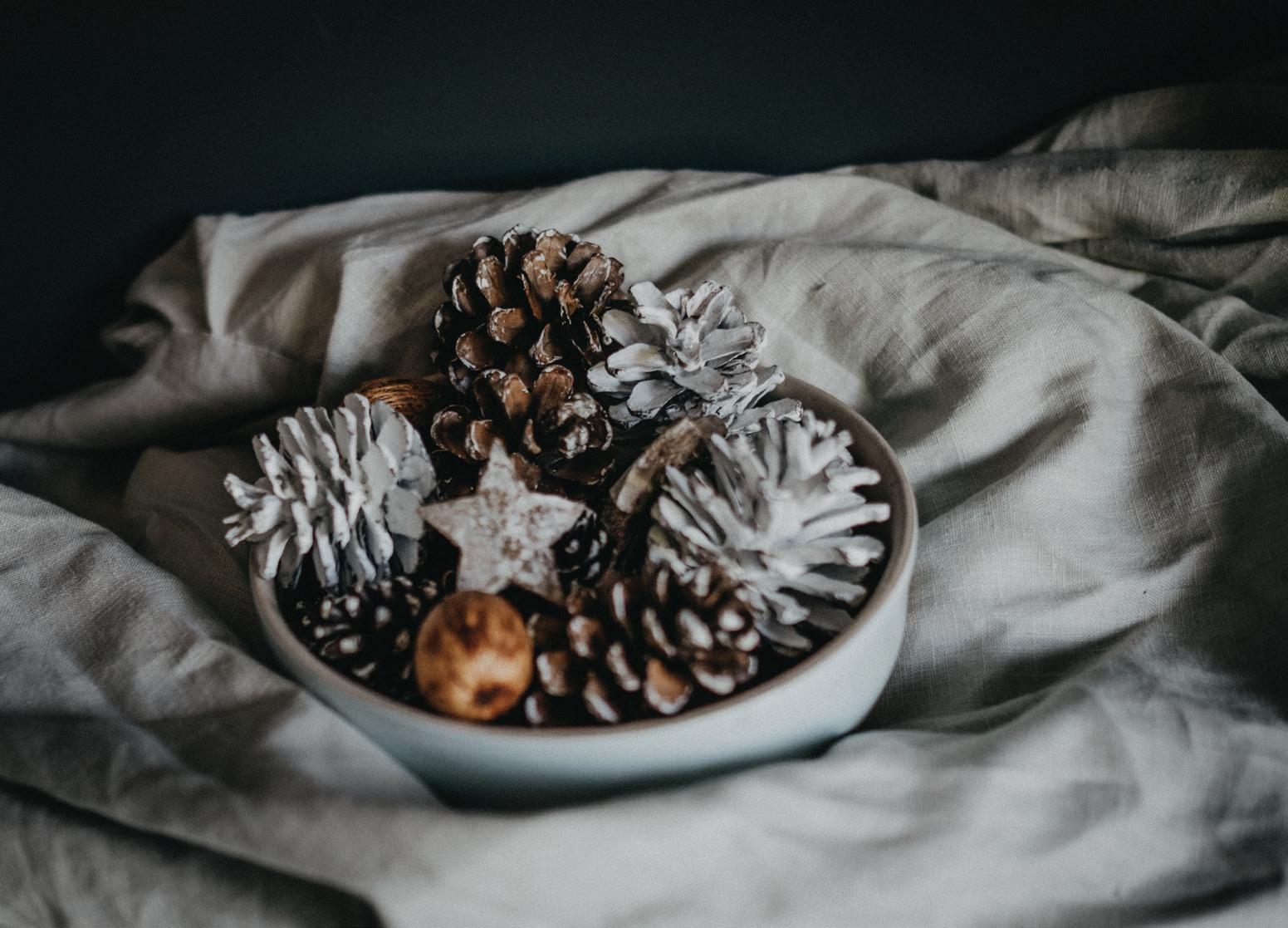
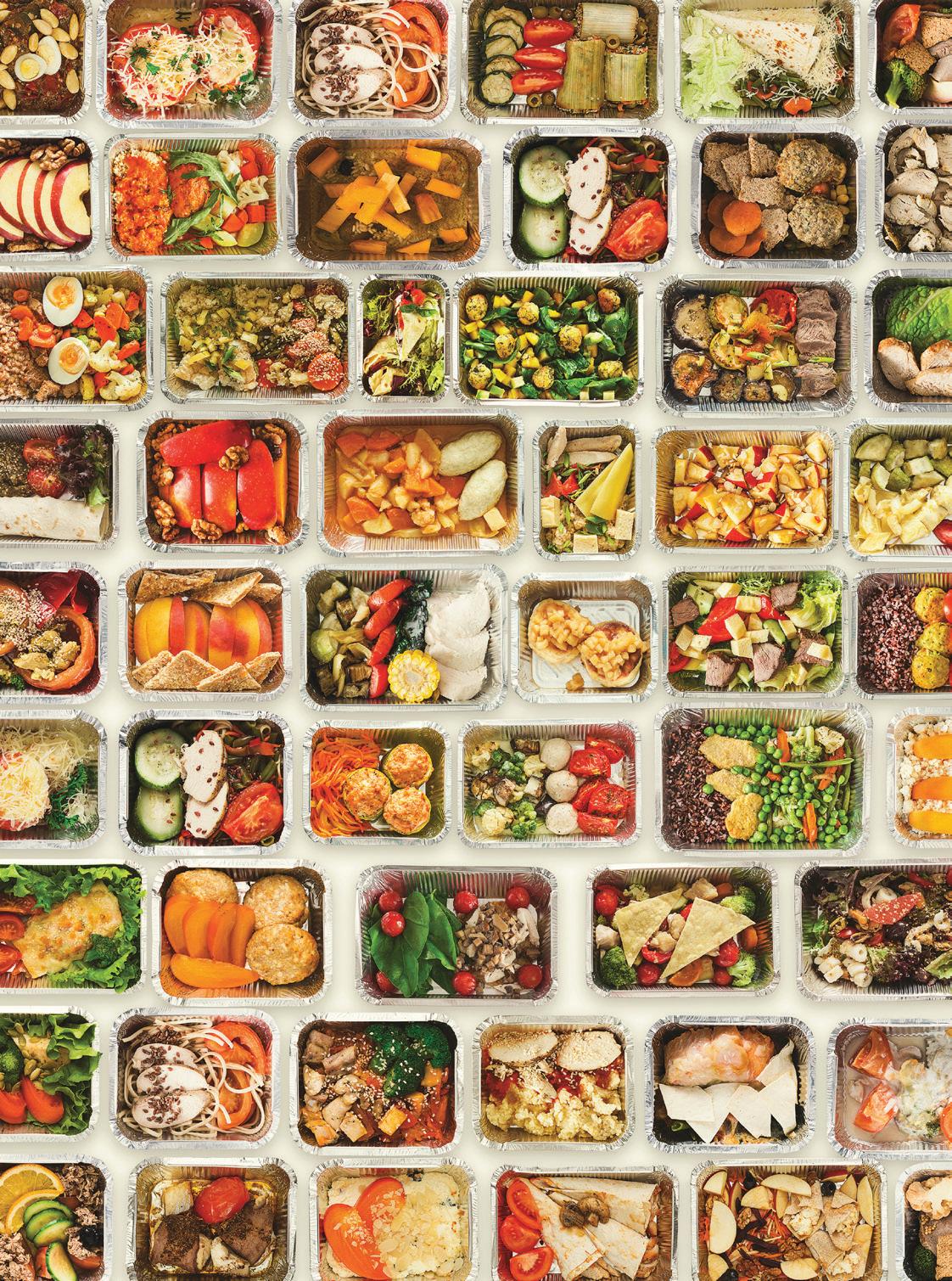


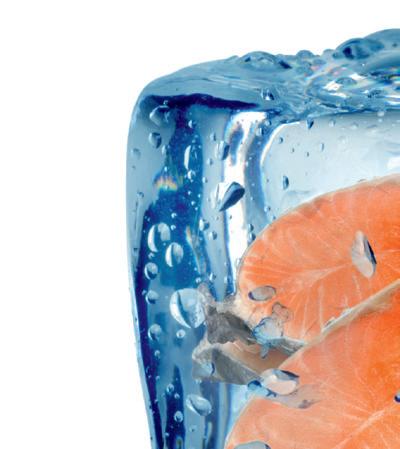
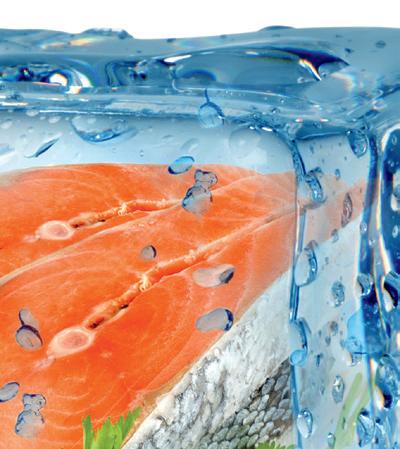
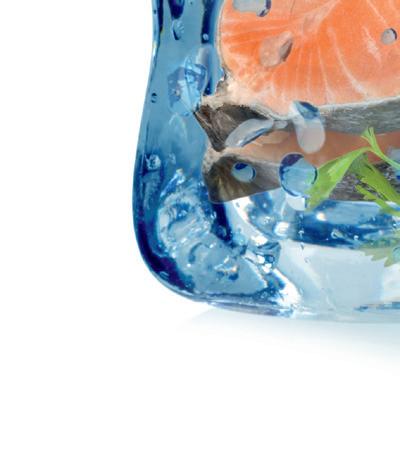

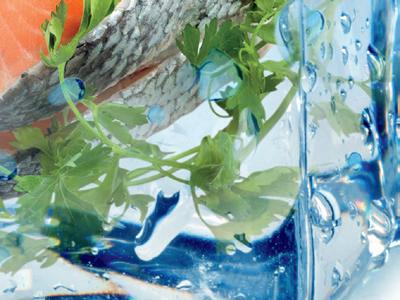






“I started using what we grew on our farm & created flavors that connected people to the Okanagan and fruits grown here,” page 29

Farming Karma
Okanagan Crush Pad
Little Creek Dressing
We had the pleasure to speak with Farming Karma, Little Creek Dressing, and Wine Crush to get to know more about their companies. What do all 3 of them have in common? They are located in the beautiful Okanagan Valley! Each edition of Cultivate has a 'regional section' and what would be better in this year's spring edition than the Okanagan. From wine to fruit soda to fresh dressing - let's see what they're all about!
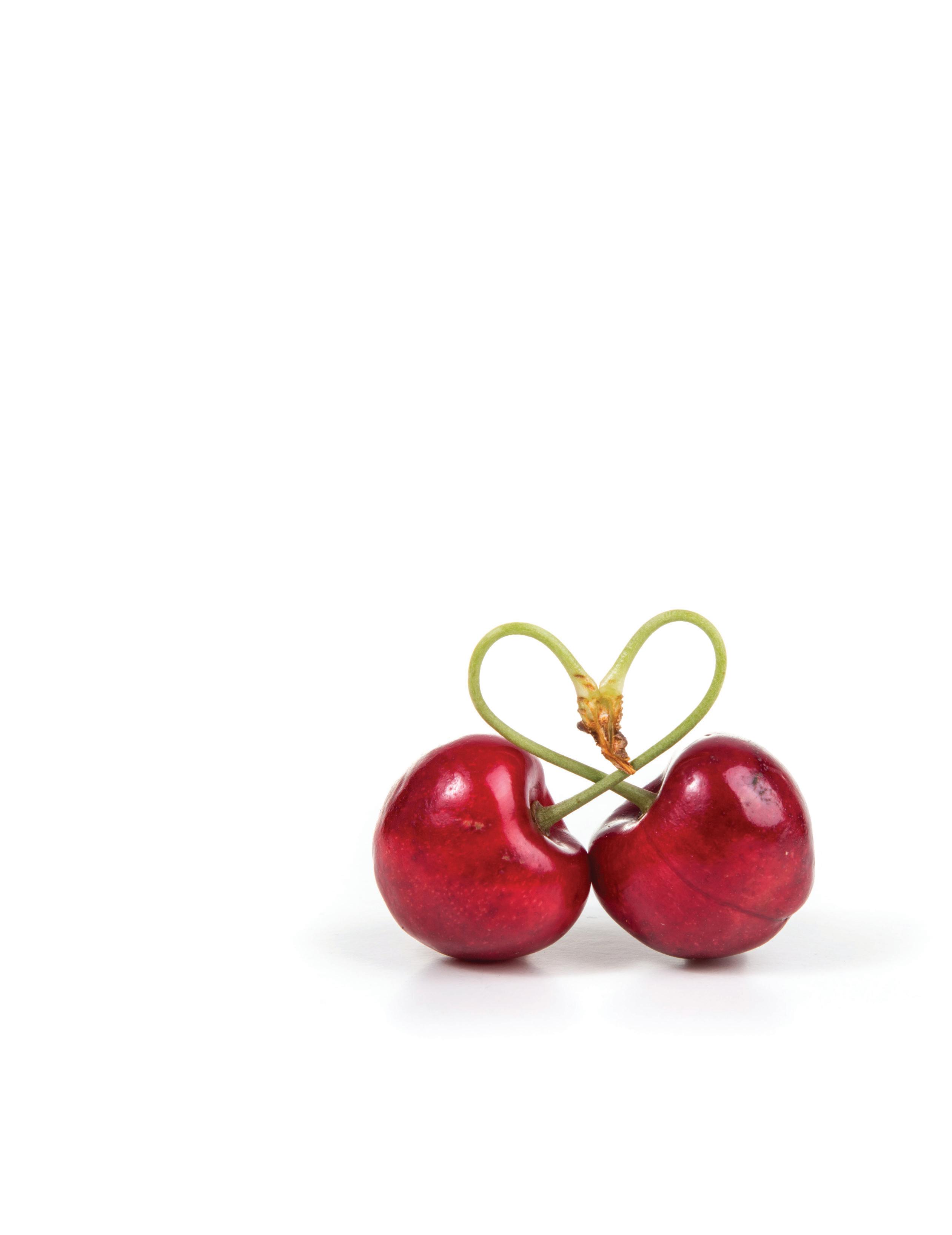
Farming Karma is a family-run business that produces natural fruit soda beverages based in Kelowna, BC. The name Farming Karma originally came from farmer, Karma Gill, who has been an apple orchardist in the Okanagan for 27 years alongside his wife Kuku.
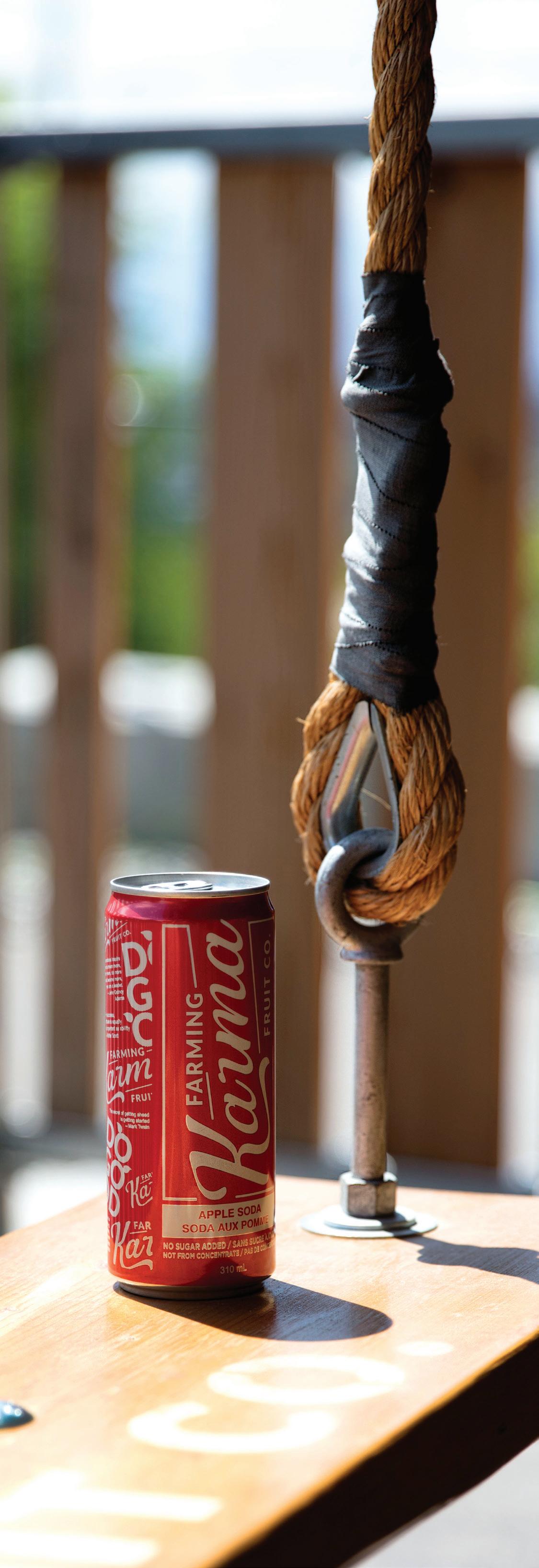
“We had a chat as a family to discuss what we should do with the orchards when my dad decides to retire,” says Avi Gill, son of Karma who is a part of the family-run business, “it started off as a general comment about turning some of our apples into juice and potentially have a fruit stand.” One thing led to another and they ended up with canned carbonated beverages, a tasting bar, and a RV park. Karma and Kuku brought their children - Avi, Binny, and Sumeet - on board when they created their Agritourism facility on a lovely orchard in Kelowna. All 5 of them pitch in for all aspects of the business. Yay teamwork!
When the Gill family started making the fruit sodas, they wanted to ensure they were introducing a healthy option into the market. “Our whole gig was to use a single apple’s worth of juice in a can, mixed with water, and carbonation!” says Avi, “We wanted to create a drink that has similar nutritional value as a serving of fruit. We do not use pure juice due to high sugar content and we try to limit it to one serving of fruit in each can.” Currently Farming Karma offers 4 delicious flavours; Apple, Cherry, Peach, and the newly released Berry. They have one more flavour in the works – Pear! Which they are aiming to have available this summer.
In addition to Farming Karma offering refreshing fruit drinks, they also invite everyone to experience Farming Karma in person at their Agri-tourism facility. The site features their Tasting Room, RV park, Dog Park, Orchard Walk, Orchard Frisbee Golf, and the Do Good Station! 2020 was their first full season, even though it was a strange one due to the pandemic; however, they made the most of it. “The Tasting Bar is a place where visitors can learn how the sodas are made, and how they taste”, says Avi. “We have viewing windows with a self-guided headphone tour where viewers can see and learn how we turn fresh fruit into canned carbonated fruit sodas.”


At Farming Karma they strongly believe in doing good, which started by creating their healthy alternative to high sugar beverages. They took that same philosophy to help recognize individuals who deserve good karma through their ‘Do Good’ initiative. “We have a nomination page on our website that allows people to nominate others who have done acts of kindness,” says Avi. Furthermore, the ‘Do Good’ station at Farming Karma is a media centre where they interview guests and leaders to showcase those giving back and share stories from the community. Through this initiative the Farming Karma team recognizes and shows their appreciation by giving back to the nominees.
Visit farmingkarma.ca to nominate someone in your life who deserves some good karma and learn more about Farming Karma and their delicious sodas!
The 'godmother' of the BC wine industry, Christine Coletta, wins the BCFB Leadership Award.

Concrete
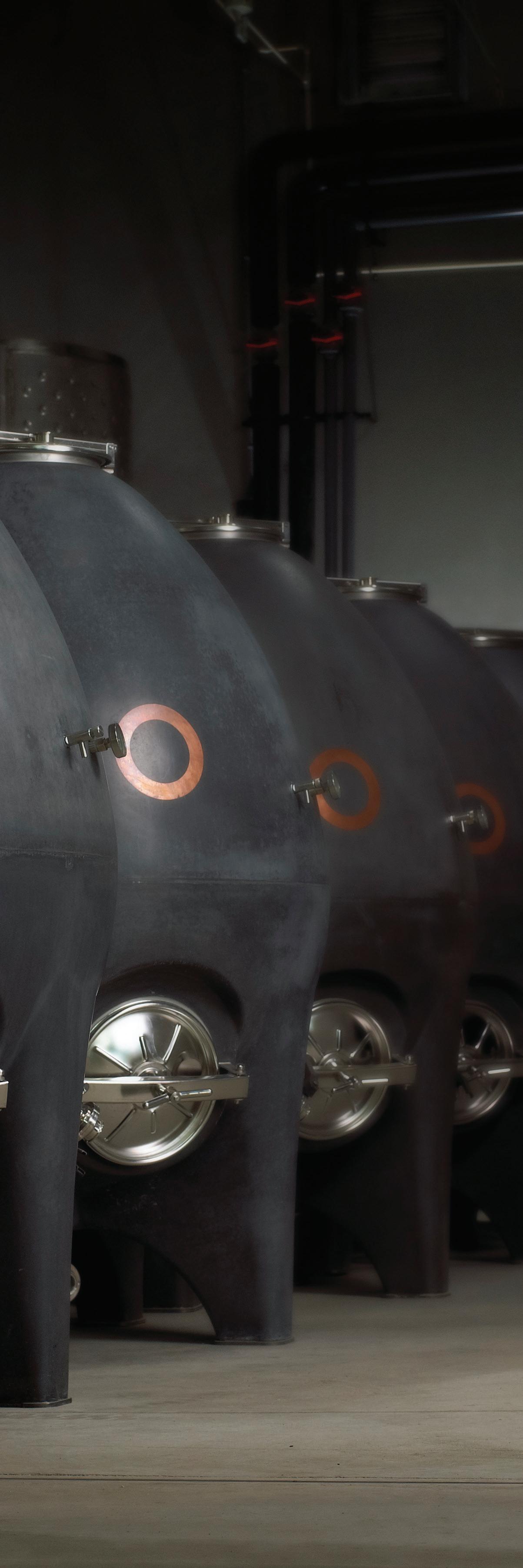
“ it was a moment of sheer madness ”
The winner of the 2020 BCFB Leadership Award went to no other than the BC wines industry’s ‘godmother’, Christine Coletta. If you are in the industry, I am sure you already know who she is. Christine has been a part of the industry for 30-plus years and is known for her leadership and volunteerism. She was the founding director of the BC Wine Institute from 1990-1999 where she grew the formation and marketing of wine standards and a myriad of promotional activities. In 2006 her family planted a vineyard and launched their wine ‘Haywire’ in 2009. In 2011 Christine and her husband founded Okanagan Crush Pad, which was launched as a purpose-built custom crush facility, a place that makes wine for several growers who were seeking to open their own winery.
“It was a moment of sheer madness,” describes Christine from when they launched Okanagan Crush Pad, “My husband Steve and I had planted a vineyard in 2005 with the purpose of growing and selling grapes as a retirement hobby. At the last minute when the grapes were nearing ripeness, we couldn’t resist the temptation to make wine and taste the results.” She says that since then, they have been running at full speed without looking back. Over the years Christine told us that their own brand has taken over most of the production and they will soon occupy the house exclusively with their own label wines. “Our winery is focused on organic farming, winemaking, and producing low intervention wines, which for us means wines with zero or few additives,” says Christine. With the growing awareness of what can be added to wine, she tells us that although those items are food grade, they do alter the wine’s profile, and some have a negative effect. “In our opinion if you are committed to making wines with a sense of place, you should make those wines as purely as possible,” says Christine.
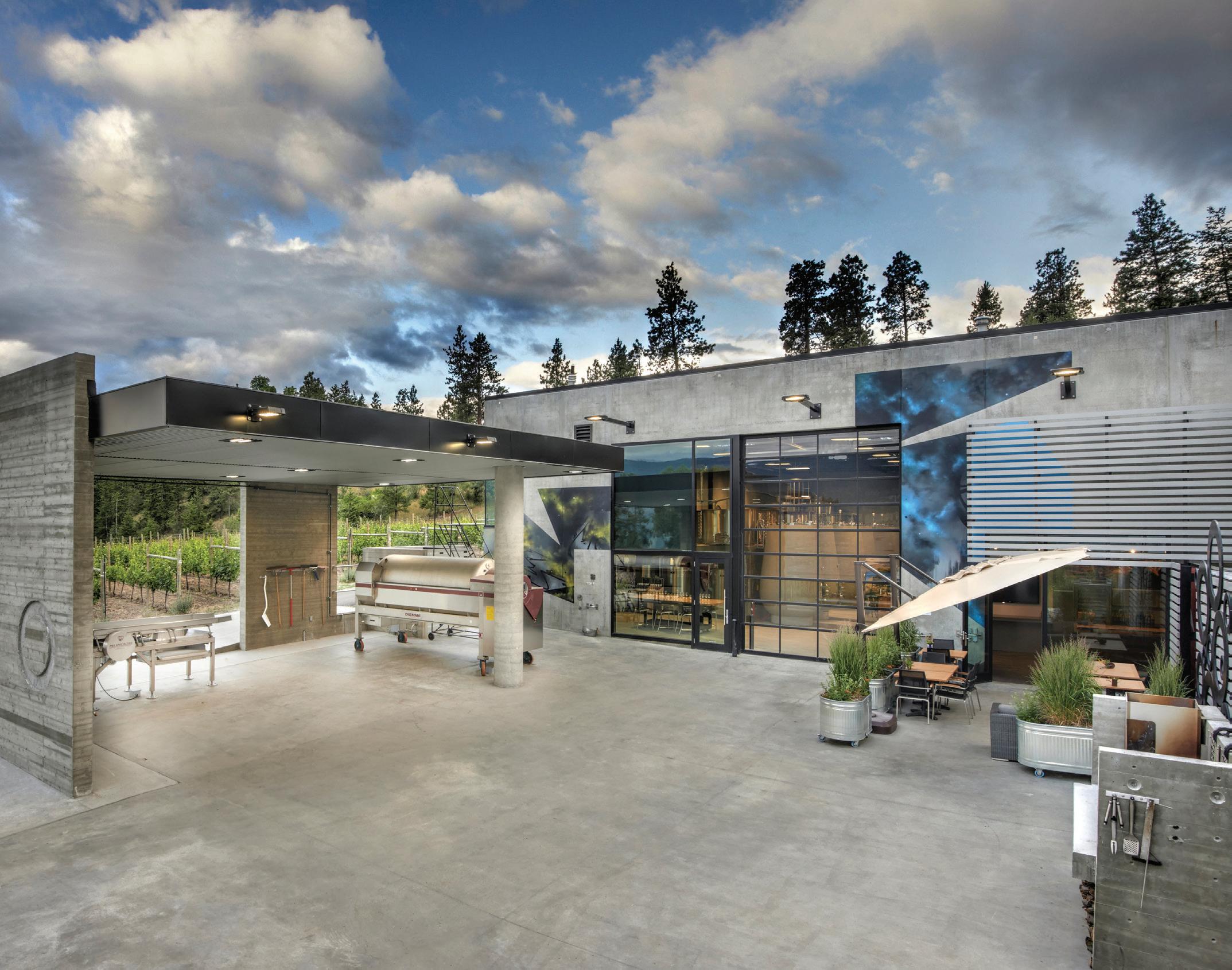


“It means working to set the example and the tone. Mick Luckhurst the previous owner of Road 13 famously said, “I work harder, not smarter”, which of course was not true. By demonstrating that he was willing to work as hard, if not harder than what was expected, he set the pace and the expectation. I call that smart.”
With Christine’s long-standing leadership, volunteerism, and strong work ethics comes recognition. One which was being awarded the BCFB Leadership Award. “Honestly, I just do what I do, and I don’t think of it in a big way,” says Christine, “Anytime I’m recognized I am always humbled as I am surrounded by so many great people and wonderful examples of true leaders.”
A day at Okanagan Crush Pad varies by season. “January and February are the ‘building a better mousetrap season,’” Christine explains. Which includes things like budgets, planning, production grids, system upgrades, label designs, and packaging. March and April are when Christine spends time traveling for trade shows, meeting with distributors, media tastings, and PR events. This year Christine will spend that time planning a new hospitality centre at the winery. Come May and June the vineyard is normally up and running, dusting off the winery, preparing for the tourist season, and hiring their hospitality crew. “July and August are open season on the public, it’s all about the people!” says Christine, “September and October we swing into harvest. Typically for part of that, I am back on the road again or can be found on the sorting line, feeding the troops, or figuring out what lots of wine go where.”
The year ends off in holiday season, a big time for wine and of course all the year-end business tasks. “And then we do it all over again,” says Christine, “It’s a nice balance for an introvert passing as an extrovert!"
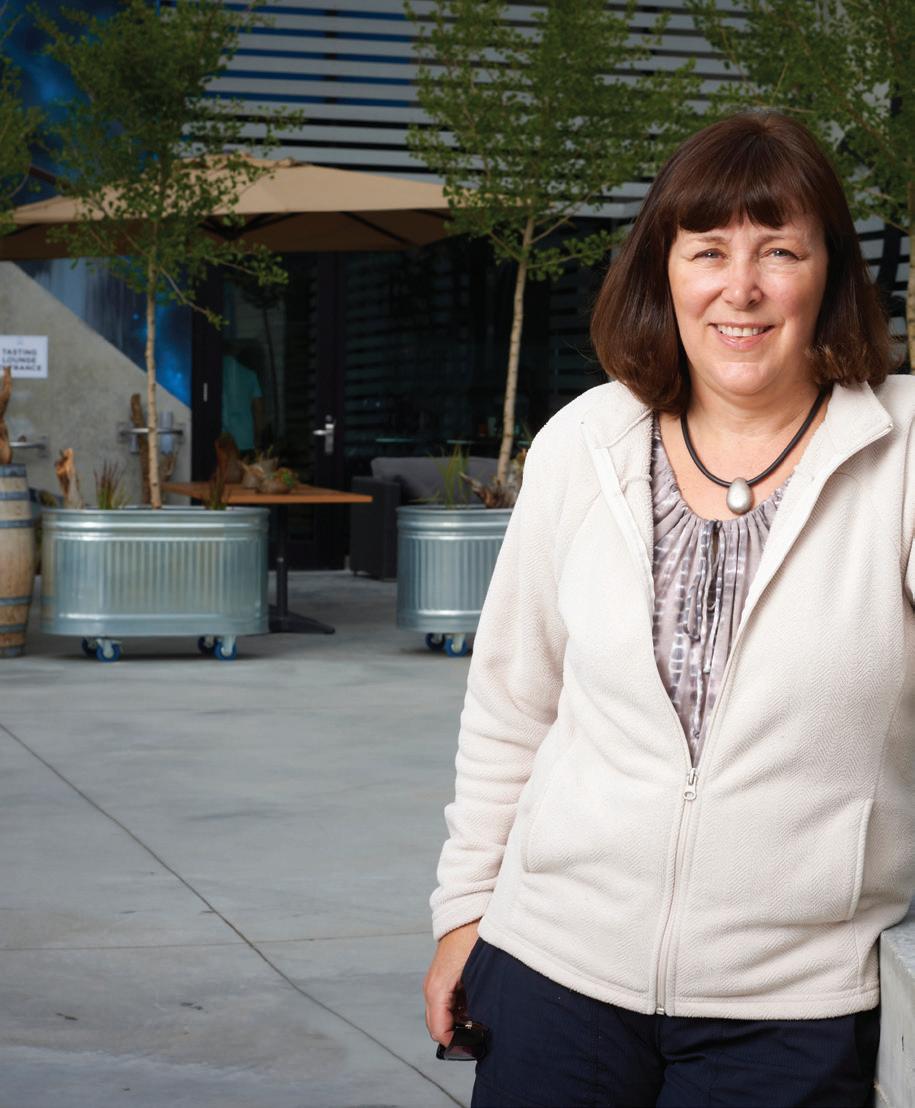
Low intervention
Wine labelled 'low intervention' means labour intensive attention in the vineyard using organic practices and hand farming. In the cellar it involves using few if any additives and little manipulation, such as fining, cold stabilization, or filtering.

hours of operation and more information visit, Okanagancrushpad.com
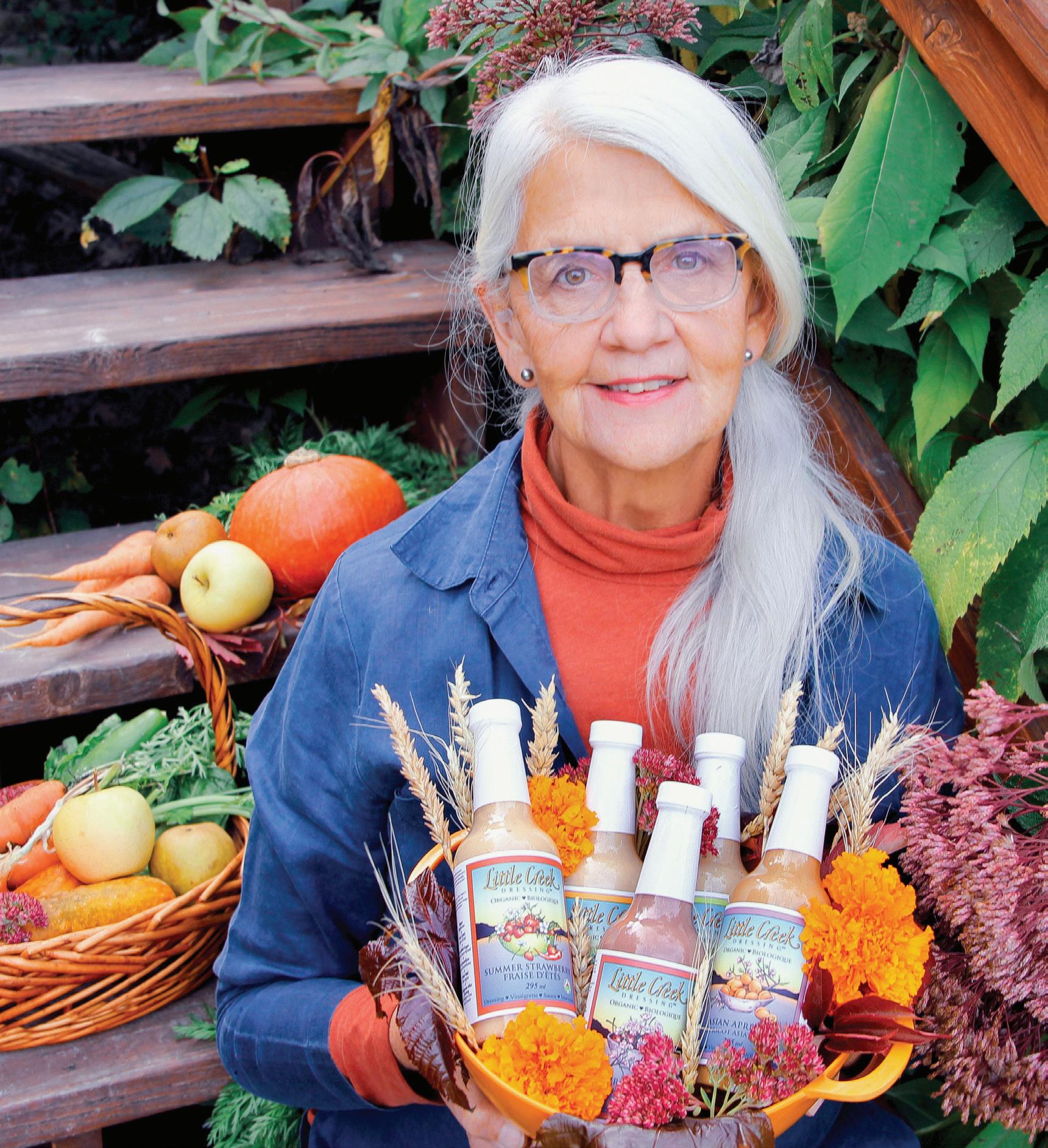
Story by Sierra Simpson
Located in Kelowna sits Little Creek Gardens, the home of Little Creek Dressing. These dressings are organic, vegan and GMO-free, made with unique artisan flavour from the perfectly paired vinegar, fruit, and spice combinations. The story started in 1984, before Little Creek Dressing existed, when owner Donna Denison, her husband Dale Ziech, and son Jubi Steinhauer moved to her family property, Little Creek. “My husband was an orchardist, and I was a potter,” says Donna, “We literally cleared our 6 acres of the forest with the help of my family, with the intention of planting an organic orchard and setting up a pottery studio for me.” Shortly after building a small home on the property,
Donna found out she was pregnant with twins. At this point she worked off the farm to provide an income to develop the farm, “which didn't become an orchard, but instead, Dale started growing salad greens to supply a few local restaurants and stores that carried certified organic produce,” says Donna, “He was the first farmer to commercially grow organic greens in the Okanagan and our farm, Little Creek Gardens, received certified organic status in 1991.”
When the twins were 9 years old, Donna wanted to be at home with them and do something more creative. “At that time, the government was encouraging farmers to create "value-added" products to help support farming,” says Donna. With that in mind, she decided to bottle the salad dressing she had made for many years that her friends and family loved. Donna turned a small building, that was planned to become her pottery studio, into a place to work on Little Creek Dressing instead. “It was just an idea,” says Donna, “I had no money, no business plan, but a dedicated support network of family and friends.” With her artistic background, Donna drew her label, and with help from a neighbour, printed them out. Her twin daughters and friends’ kids' hand-coloured the labels and they were glued onto 375ml bottles at the time. “I loved the look of the bottles, and since we were in wine country, I felt it suited our market: Elegant, gourmet, and healthy,” says Donna.
In late July of 1995, Donna approached their local health food store who agreed to demo Little Creek Dressing and her husband’s organic salad greens. This was where it all began! “I started using what we grew on our farm and created flavors that connected people to the Okanagan and fruits grown here,” says Donna. Little Creek now offers 5 different flavours; Okanagan Original, Okanagan Ceasar, Cherry Balsamic, Asian Apricot, and Summer Strawberry. They are currently working on a new flavour – Lemon Tumeric!
There have been four generations of Donna’s family involved in Little Creek Dressing: her parents, husband, her three children and 2 grandchildren. “My son, Jubi, now runs the company, while my twin daughters, Amber and Kerisa, run the social media,” says Donna, “My husband, still helps out occasionally by visiting stores and of course, always telling the story!” Donna is grateful to members of the Okanagan community, family, and friends who have all been a part of the journey and contribution to the 25 years of success with Little Creek Dressing. “I am setting up a pottery studio here at Little Creek, where I hope to create salad bowls which will be sold with the dressing,” says Donna “I'm semiretired, so I now have the opportunity to get back into potteryfull circle so to speak - 36 years later!”
1/4 cup of chopped white carrots
2 sliced strawberries
1/2 cup of snap peas
1/2 of sliced avocado
chopped pistachios
pumpkin seeds a squeeze of lime juice
Little Creek Summer Strawberry dressing to taste
learn more about Little Creek Dressing visit littlecreekdressing.ca
Find more stores in your local area at littlecreekdressing.ca/store-finder




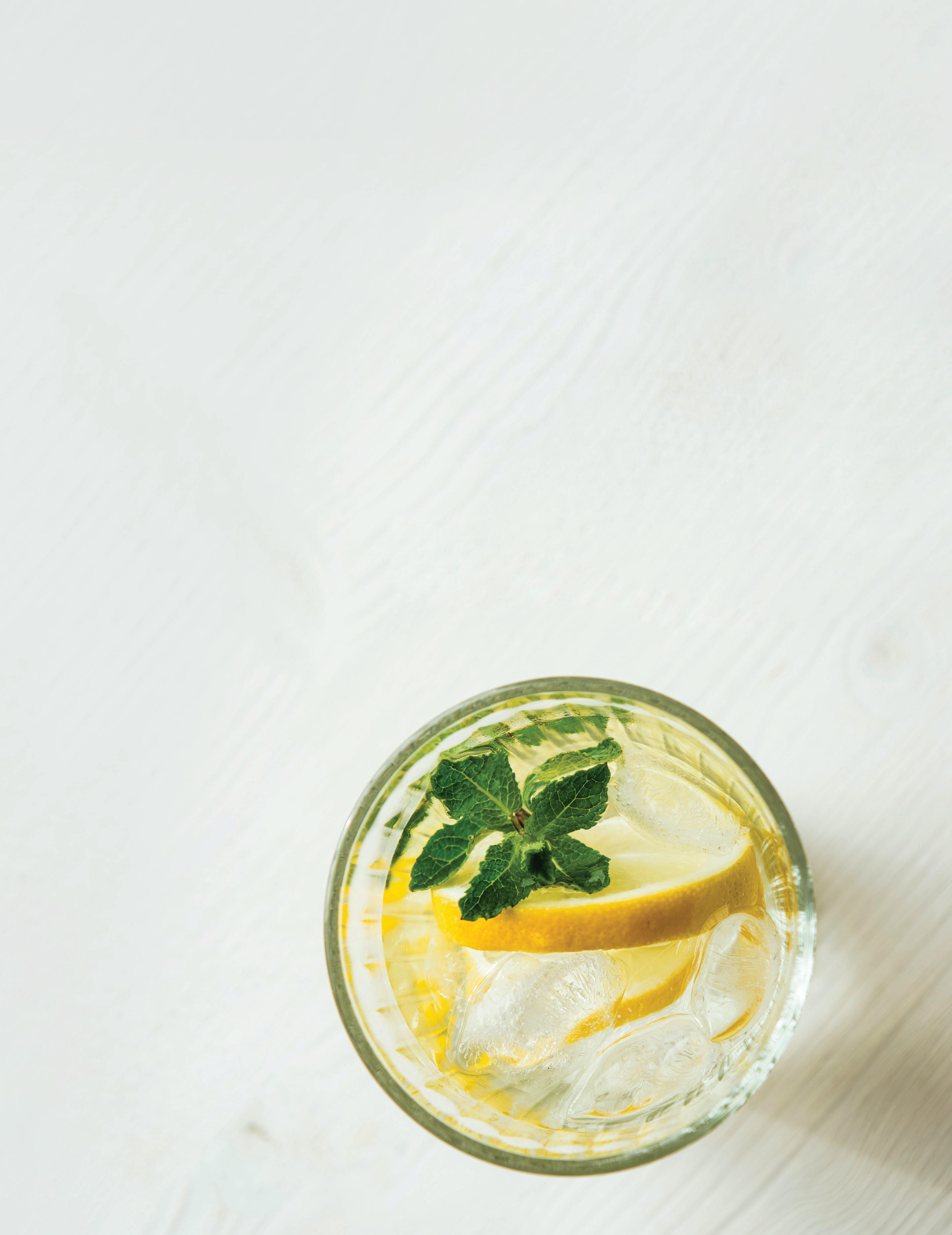
FROM THE SHORE TO YOUR DOOR - Sustainable Seafood with Organic Ocean
PEOPLE, ANIMALS, AND HEALTHY SOILS
What’s cool as a cucumber, vinegary on the taste buds, and has that crunchy texture you can’t resist? page 35 28 36 32 34
COCKTAILS MADE FRESH - Delivered Right to Your Door
PRETTY BIG DILL – Who is BC Brine?
Organic Ocean, Canada’s premier brand of wild and responsibly sourced seafood, was established in Vancouver and recently expanded to a 12,000 square foot federally registered facility in the fishing hub of Steveston. A group of like-minded fishers - including Founder and CEO Dane Chauvel - began working on the concept in 2003. Five years later the company was transformed from an experiment to a business. “At the beginning, we worked collaboratively on selling our fish direct to the general public,” says Dane, “When the culinary world figured out they could get sustainably harvested seafood direct from the source, word spread rapidly and before too long we were supplying seafood from coast to coast.”
Before the pandemic in 2020 they were providing seafood to some of the most influential chefs running the kitchens in the finest restaurants in Canada, the U.S., and Southeast Asia. “With a presence in Southeast Asia, we were among the first to figure out the pandemic was coming our way and that it could have a severe impact on our market,” says Dane.
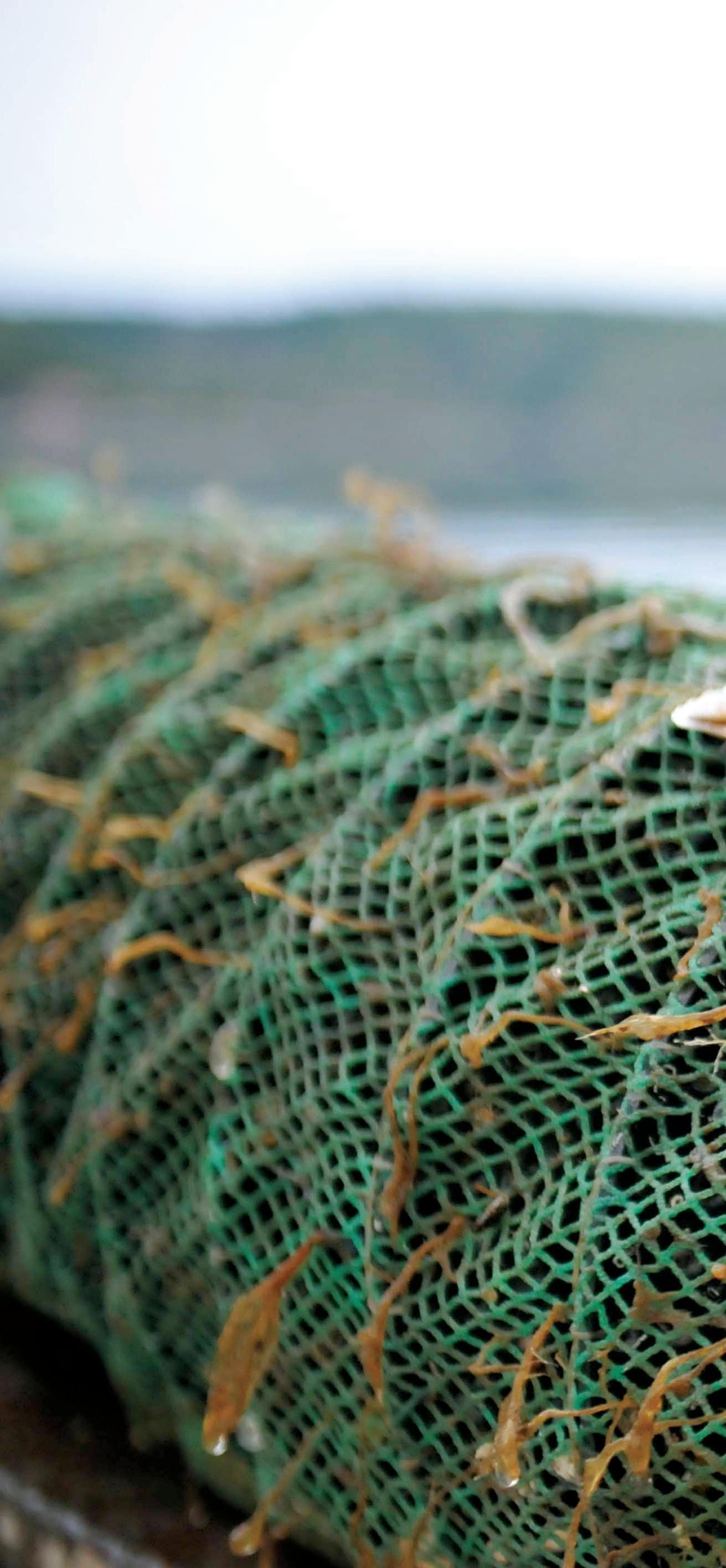
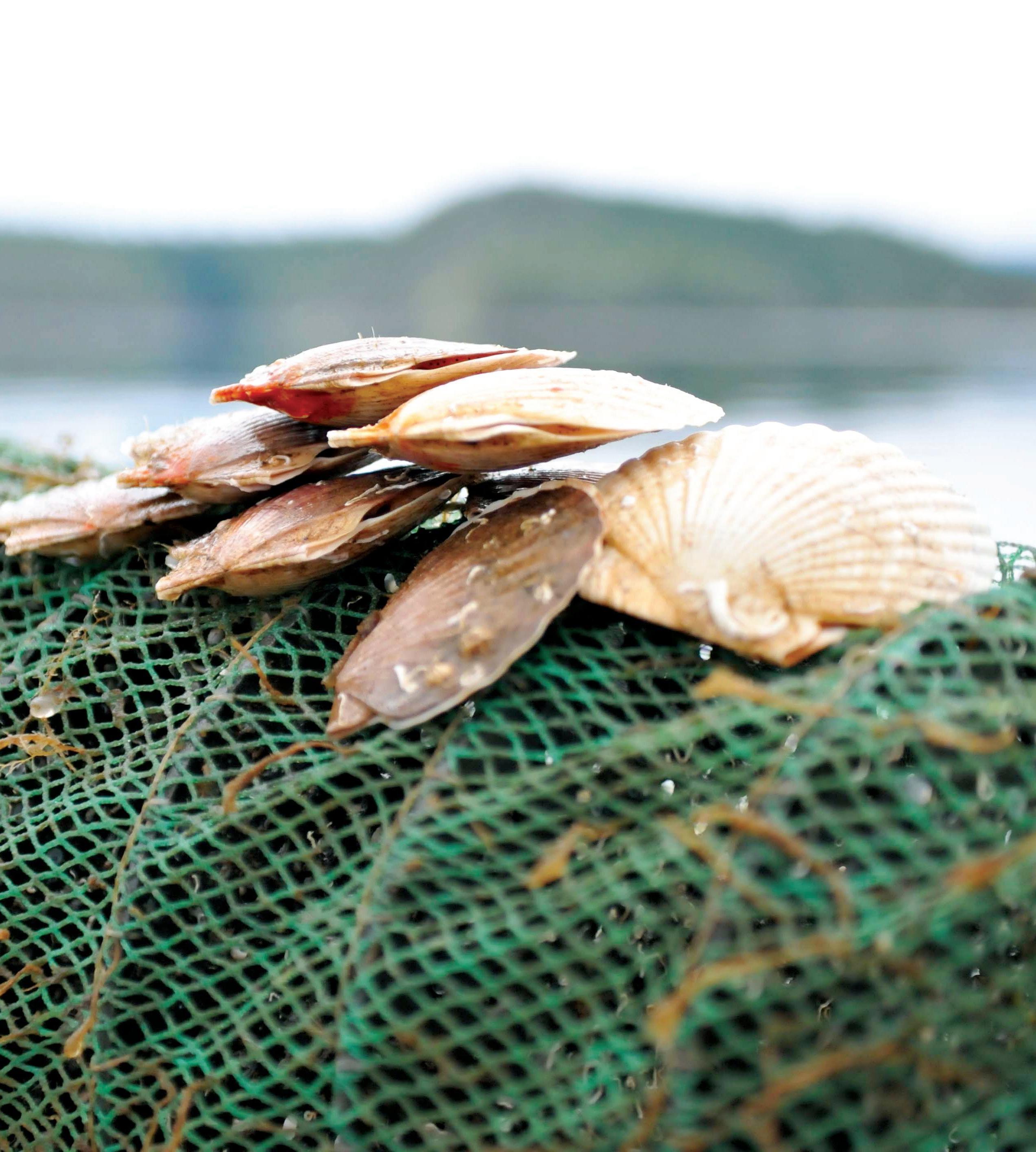
"Everything we supply is required to meet or exceed the highest sustainable and socially responsible production standards.”

Based on what they saw happening in Wuhan, Dane says their team prepared for the worst and began exploring options to keep the seafood supply chain flowing. “We had in fact, trialed a direct-to-consumer program a few years previous but abandoned it when we couldn’t figure out how to make the logistics work,” says Dane, “given the evolution of e-commerce, we determined we could build an online store and adapt our shipping capability to home delivery.”
In April of 2020, they launched their direct-to-consumer initiative and began delivering seafood to homes in and around the Lower Mainland. They saw this as an extension of their original objective to improve the supply chain by connecting producers with consumers and, in the process, generating and distributing value to both. Organic Ocean recently expanded the program to offer next day delivery service to every province from B.C.
through to and including Quebec. “This provides customers across the nation with access to the same seafood that to this point, has been largely exclusive to those who live on the west coast,” says Dane.
Most of Organic Ocean’s products are harvested or produced in British Columbia, with the odd out-of-province sourcing of items that are not available locally. “We source from wild capture fisheries, Indigenous harvesters, and from responsible aquaculturists,” says Dane, "Everything we supply is required to meet or exceed the highest sustainable and socially responsible production standards.” As a Certified B Corporation and member of 1% for the Planet, Organic Ocean is triple bottom line focused, meaning they are as committed to environmentally and socially responsible business conduct as they are to profitable operation.
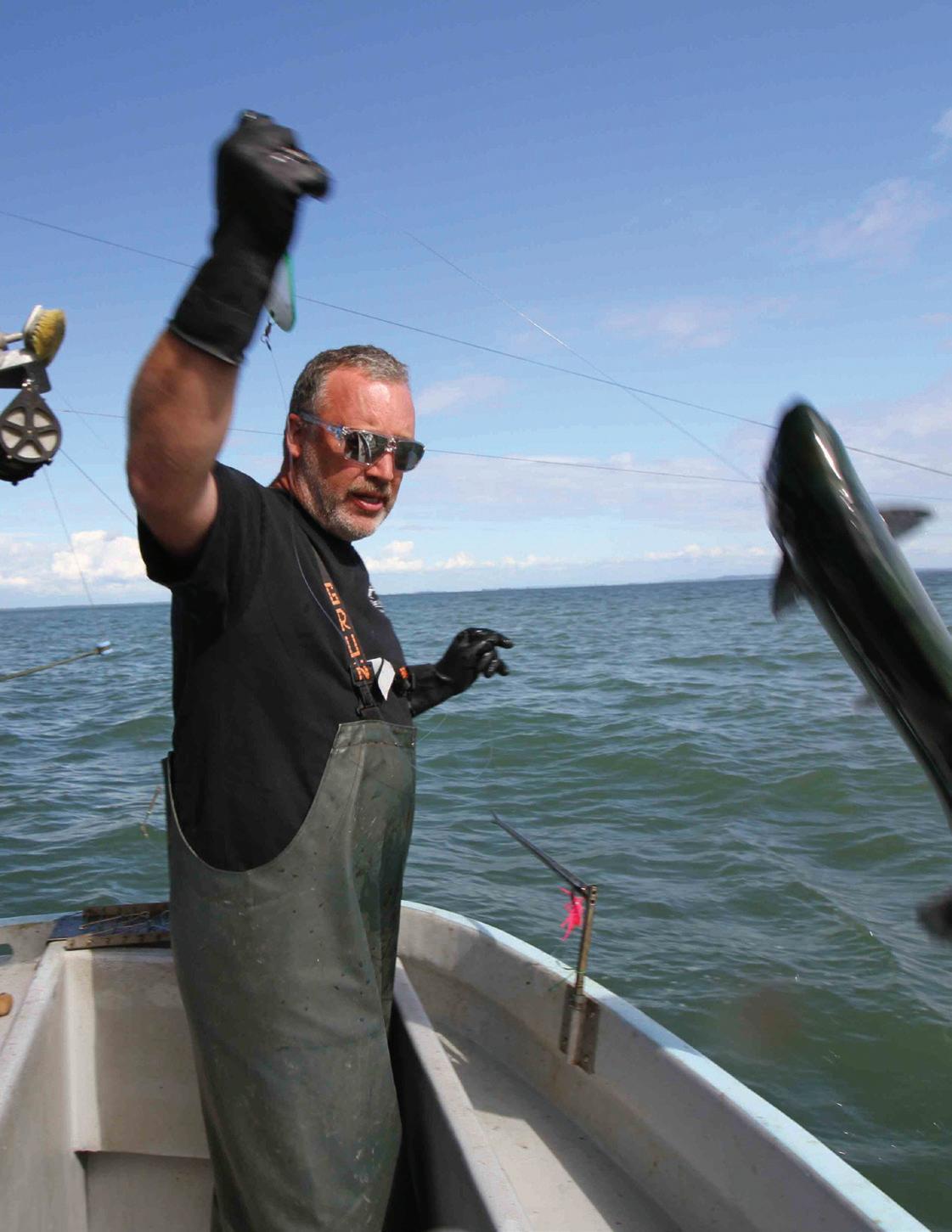
image: Dane Chauvel, Organic Ocean's Founder and CEO
“In addition to taking care of our customers, staff, and suppliers, we knew there were others who stood to be impacted by the pandemic and for whom there would be significant need but little support,” says Dane. That was when they decided to create the “Neighbours Helping Neighbours” program through which they’ve made significant donations of seafood to non-profit and charitable organizations which prepare meals for the community’s most vulnerable. “This program has grown in scope and has been extended to help Ocean Wise, the Kelty Patrick Dennehy Foundation, Chefs for Families, A Loving Spoonful, Goodly Foods Society, and The Stop Community Food Centre, among others,” says Dane.
• 4 portions wild salmon
• 1 small red onion, sliced
• 1 whole lemon, zest and juice
• 1 whole orange, zest and juice
1 tsp toasted sesame seed oil
• 1 tablespoon soy sauce
On a double sheet of aluminum foil, lay out the sliced onions, placing the salmon portions skin side down, on top . Zest over the lemon and orange on top of the salmon, drizzle with the sesame seed oil and soy sauce.
Fold up the sides of the foil to make a pouch.
Bake the fish at 375 degrees for 6 to 8 minutes or until the salmon is just slightly underdone. The residual heat will continue to cook the fish.
Serve over rice or salad, drizzle the lemon and orange juice over the fish just as you serve it.
Chef Robert Clark, C.M. provided these recipes for the benefit of those who have received the seafood hampers donated to families through the Growing Chefs program.
Find more recipes and preparation tips create your next seafood feast at organicocean.com
From fine dining to your own kitchen, Organic Ocean provides sustainably sourced, responsibly produced, high-quality seafood and exceptional service. We highly recommend checking them out for their next day delivery now available across Canada.
See what Organic Ocean has to offer at organicocean.com
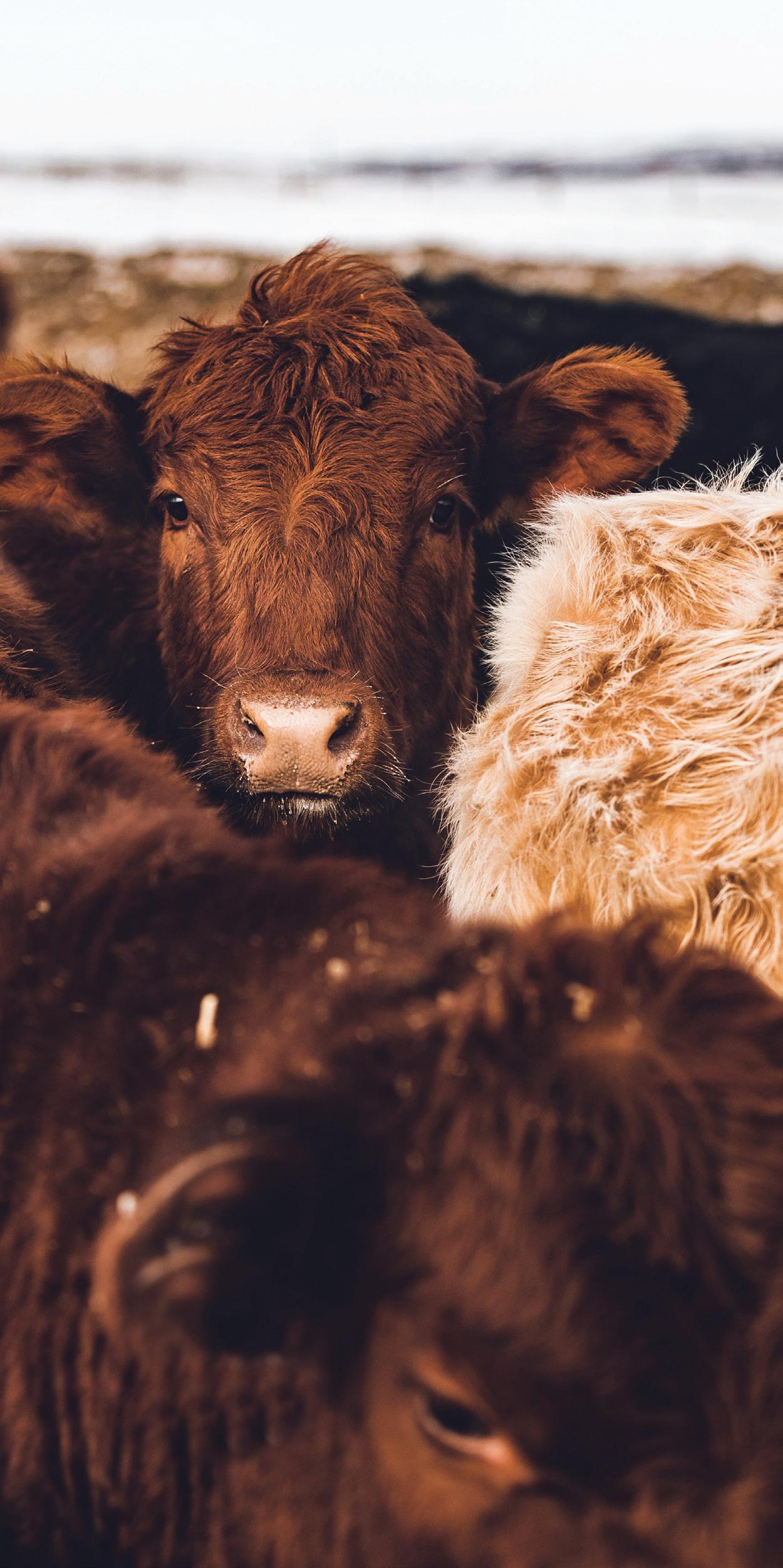
Story by Sierra Simpson
Pasture to Plate, Vancouver’s Top Choice Butcher Shop for the past three years, offers pastured meat and delicatessen. The company was established in 2000 by Jasmin and Felix who are originally from Switzerland. The two got married in 1979 and decided to move to Canada. They started ranching in Redstone BC over 40 years ago but after 20 years of conventional ranching they wanted to make a change for the better. They began to transition their ranch to organic and biodynamic certifications and direct marketing of clean, natural meats to consumers to offer a more meaningful business. They originally were selling at farmers' markets which lead to their own butcher shop on Commercial Drive in Vancouver that opened in 2011. The family business has three generations working together. Felix and Jasmin still run the ranch and have their finger on the pulse of the entire operation. Their daughter, Barbara Schellenberg, is the general manager of the shop in Vancouver and the abattoir, Chilcotin Harvest. Her son, Garrison Pauls, is the head butcher at the Vancouver shop.
Situated in Redstone sits Rafter 25 Ranch, where organic ranching and farming practices are applied, although no longer certified, organic and biodynamic practices are still followed. The animals are born and raised on the ranch and are respectfully harvested at Chilcotin Harvest. “Today the
ranch hosts many families and live-on-site staff, the yearround Kinikinik Restaurant & Store, and beautiful rental accommodations,” says Barbara. Every two weeks the P2P refrigerated truck takes the 10-hour drive down from the ranch to Vancouver to replenish the ranch raised meat and eggs at the P2P Butcher Shop. The truck brings back certified organic food supplies for the Kinikinik Restaurant and Store. The team at Pasture to Plate encourages the public to visit the farm. As food producers, transparency is a key-value, along with sustainability and integrity. The saying at P2P is “We are about People, Animals and Healthy Soils.”
In the fall of 2019 Pasture to Plate started offering home delivery in the Vancouver area, positioning them well when the pandemic hit. Come fall 2020 they were able to deliver across the province, which helped grow their business and customer base. “We have an ongoing aim to reduce waste and to increase comestible yield per animal, we really want everything edible to be used,” says Barbara, “Since we have our own abattoir, Chilcotin Harvest, we have also been able to open our doors to help other small producers bring the finished product to their customers.” In the near future Pasture to Plate will be launching an app that will offer a user-friendly platform to allow customers to customize orders with ease.
“Biodynamics is about working with the land and environments natural rhythms, including weather, seasons and lunar cycles. We find it a simple and natural way of working with the land, plants and animals.” - Barbara Schellenberg

VISIT
P2P Butcher Shop: 1420 Commercial Dr, Vancouver, BC
To learn more about P2P and shop their amazing products visit: www.pasturetoplate.ca
1 beeswax aged Prime Rib Steak from P2P
Allow the steak to come to room tempature before cooking, leave it out for an hour or two prior.
Remove the beeswax from the steak.
Preheat oven to 450 degrees.
Generously salt the steak all over with 1 Tsp of fine sea salt from Vancouver Island Sea Salt (hand harvested off the BC coast and available at the butcher shop).
Heat a cast iron pan until very hot, lightly smoking; add 1 Tbsp. of P2P pork lard to the pan and melt, leaving at heat high.
Put your steak in the pan and sear for 2.53 min or until the steak easily lifts off the pan without sticking. Once nicely seared flip it so the fat cap is down and sear the fat cap for 30 seconds, then flip to sear the other side of the steak for 2 minutes.
Move the pan with the steak to the oven for 4 minutes (rare), 6 minutes (medium rare); then return the pan to the stove (no heat), add 2 Tbsp. soft butter from a local dairy to the pan and a sprig of fresh rosemary from your patio, spoon it over the steak to coat all sides. Move the steak with the juices to a plate and cover with a bowl or lid, let rest for 10 minutes.
Serve the steak with a generous wedge of room temperature, Castle Blue Cheese from The Farm House dairy in Agassiz (also available at the butcher shop) and a glass of rich BC red wine.
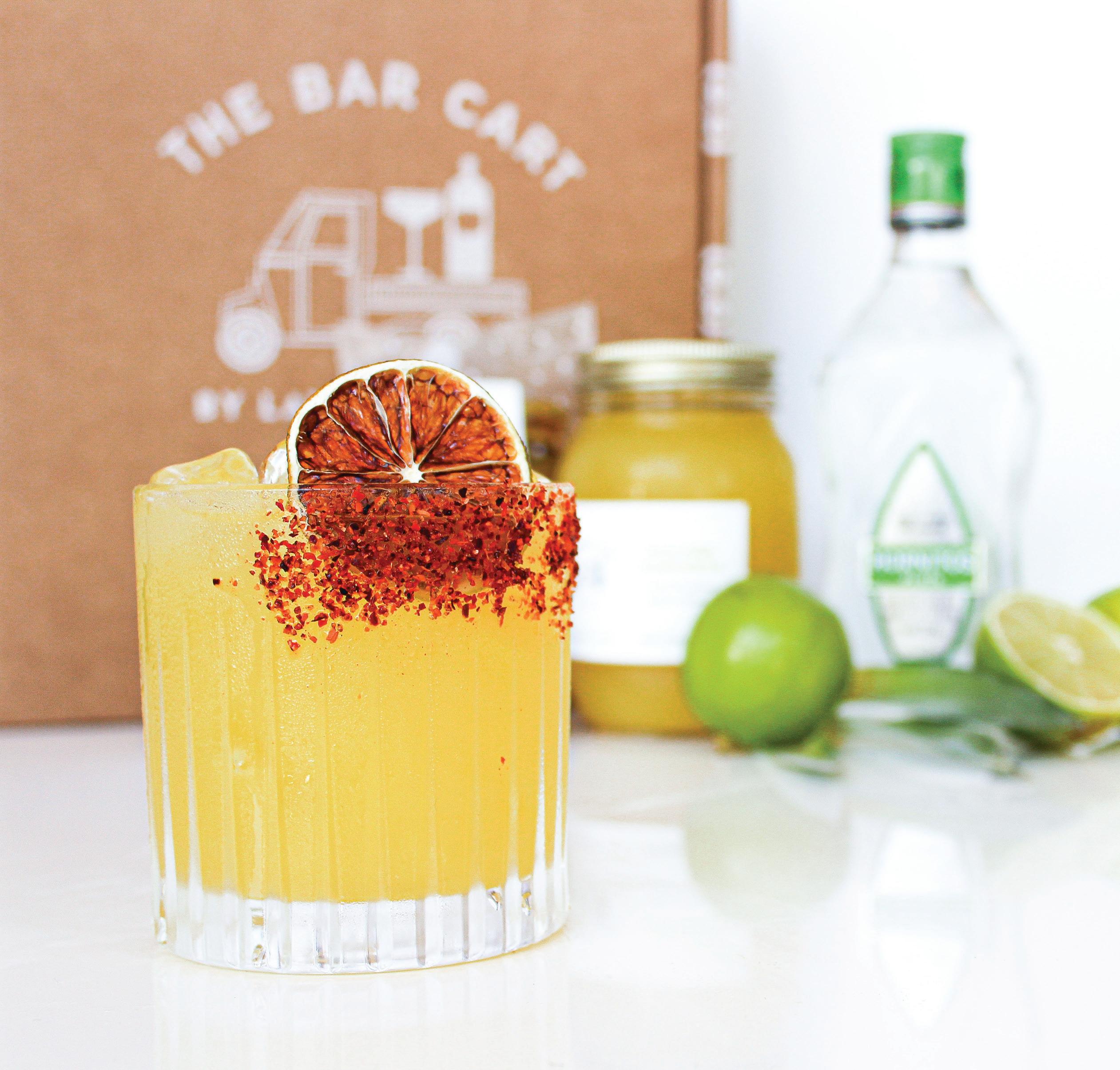
Introducing Metro Vancouver’s newest way to enjoy premium craft cocktails from the comfort of your own home – The Bar Cart, a cocktail kit delivery service with seasonal features, award winning cocktails and virtual cocktail class experiences. The Bar Cart is a division of Lavish Liquid Event Bar Service, Vancouver’s premier luxury event bartending service created and owned and operated by award winning BC bartenders, established in 2009. “We saw a spot in the market that was untapped,” says Chris Chuy, Principal of Lavish Liquid, “Craft cocktails at events was something everyone wanted, but no one was executing properly. How often would you go to a wedding and ask for a cocktail and they hand you a vodka cranberry?” They wanted to offer craft cocktail lounge experience at any event setting, and that’s exactly what they did.
The Bar Cart was a project the team at Liquid Lavish had been planning for over 3 years but didn’t have the time and resources to execute it while working 400 events a year. When the pandemic hit, there was a major shift from cocktails at in-person events to boxing them up and delivering them to homes and offices. “It officially started only 1 week after BC was locked down,” says Chris, “We had tons of inventory and we had to move it quickly to prevent product waste and recover our costs for the hundreds of events that were now cancelled or postponed until further notice.” The cocktail kits have evolved from simple mason jars in paper bags with handwritten notes to a beautifully designed package assembled with all the mixings sourced locally when possible.
Once a customer places an order online of a cocktail kit, The Bar Cart sources the alcohol that matches their cocktail of choice, and they start assembly right away or on the date selected for delivery. The alcohol comes separately as required by BC liquor laws, but their secret recipes come all packaged and ready to go. Once the kit is delivered, follow the easy 3-4 step instructions to make a delicious craft cocktail, add your garnish and enjoy! The Bar Cart make’s a perfect gift, also giving customers the option to add a personalized card with their kit. A fun and safe way to send a “cheers” to friends and family! The cocktail kits include everything you'll need to prepare fresh craft cocktails, all you need is the glassware and ice!
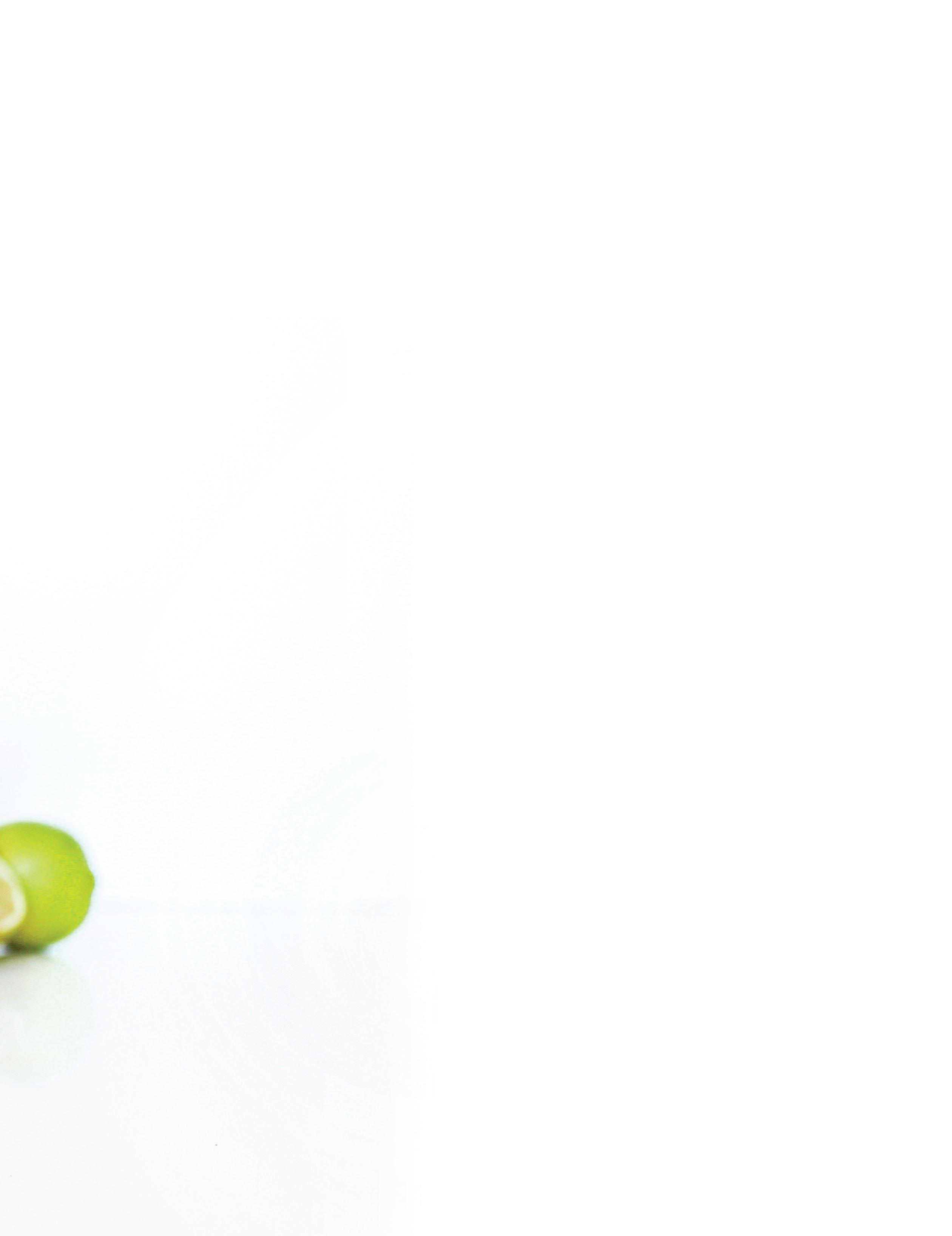
"How often would you go to a wedding and ask for a cocktail and they hand you a vodka cranberry?”
The Bar Cart offers virtual cocktail classes as a way for people to connect with others. From learning about different spirits and how to make the selected cocktail, these classes are currently available, visit their website for more details. The goal for 2021 will be adding new programs, creating new experiences for customers, guests, and clients to engage with them online and hopefully in person again soon.
To learn more about The Bar Cart and their cocktail kits visit barcart.ca
WHAT’S COOL AS A CUCUMBER, VINEGARY ON THE TASTE BUDS, AND HAS THAT CRUNCHY TEXTURE YOU CAN’T RESIST?
Pickles, of course! (To be specific, BC-grown craft pickles!)
What is pickling, anyway? Pickling is a method of food preservation that gives foods longer shelf life. Traditionally, the word ‘pickle’ refers to pickled cucumbers. Any other pickled food is referred to as “pickled beets” or “pickled peppers.” (Try saying that five times fast!)
BC Brine Preservatory takes pickling seriously! Made on their farm in Falkland in the North Okanagan, BC Brine Pickles hit all the marks of top-notch pickles. How do they do it? It’s simple: they believe that simple ingredients make the most delightful flavors.
Because you care where your food comes from, here is the story of BC Brine. Co-owner and operator Quinton Woronchak has spent his career working for large food processing companies. This inspired him and Allison Recksiedler to take a risk and start their own company to deliver the highest quality products to customers in BC and across Canada.
From the start, their business plan was on vertical integration. That meant growing the majority of their produce, making the pickles themselves, and designing their labels right on the farm. Why do they do it all themselves? Vertical integration allows for a sustainable and environmentally-friendly supply chain.
Today, they follow the same mission statement they were founded upon: Bring affordable, high-quality craft pickles to customers across Canada. It’s this commitment that has earned them a legacy in Falkland and across Canada.
Did you know that most pickles you find in grocery stores aren’t locally grown or produced? As we all know, investing in local small businesses can have far-reaching benefits. Not only is it better
for the environment, it fuels local economies!
DeMille’s Farm Market, a family-owned market in Salmon Arm, was the first store to sell BC Brine’s craft pickles. Today, they’re on the shelves of over 175 stores in Vancouver, Vancouver Island, BC Interior, Kootenays, Alberta, and surrounding areas.
Let’s get back to what matters most: the pickles! The lipsmacking pickle line-up at BC Brine includes:
• Dill Pickles
Spicy Dill Pickle Chips
• Pickled Beans
• Spicy Pickled Beans
Pickled Carrots
• Pickled Celery
More pickled products are coming! Get the full line up from bcbrine.ca.
In 2021, BC Brine’s only plan is to continue growing. They plan to upgrade their systems in their micro-cannery to expand their reach further. They won’t stop until everyone’s gotten to experience the exceptional crunch of BC Brine pickles!
It’s safe to say BC Brine – they’re a pretty big dill!
“There is no need for a majority of pickled products to come from around the world when we can make them right here, cut down our carbon footprint, and have a fresher, better pickle.”
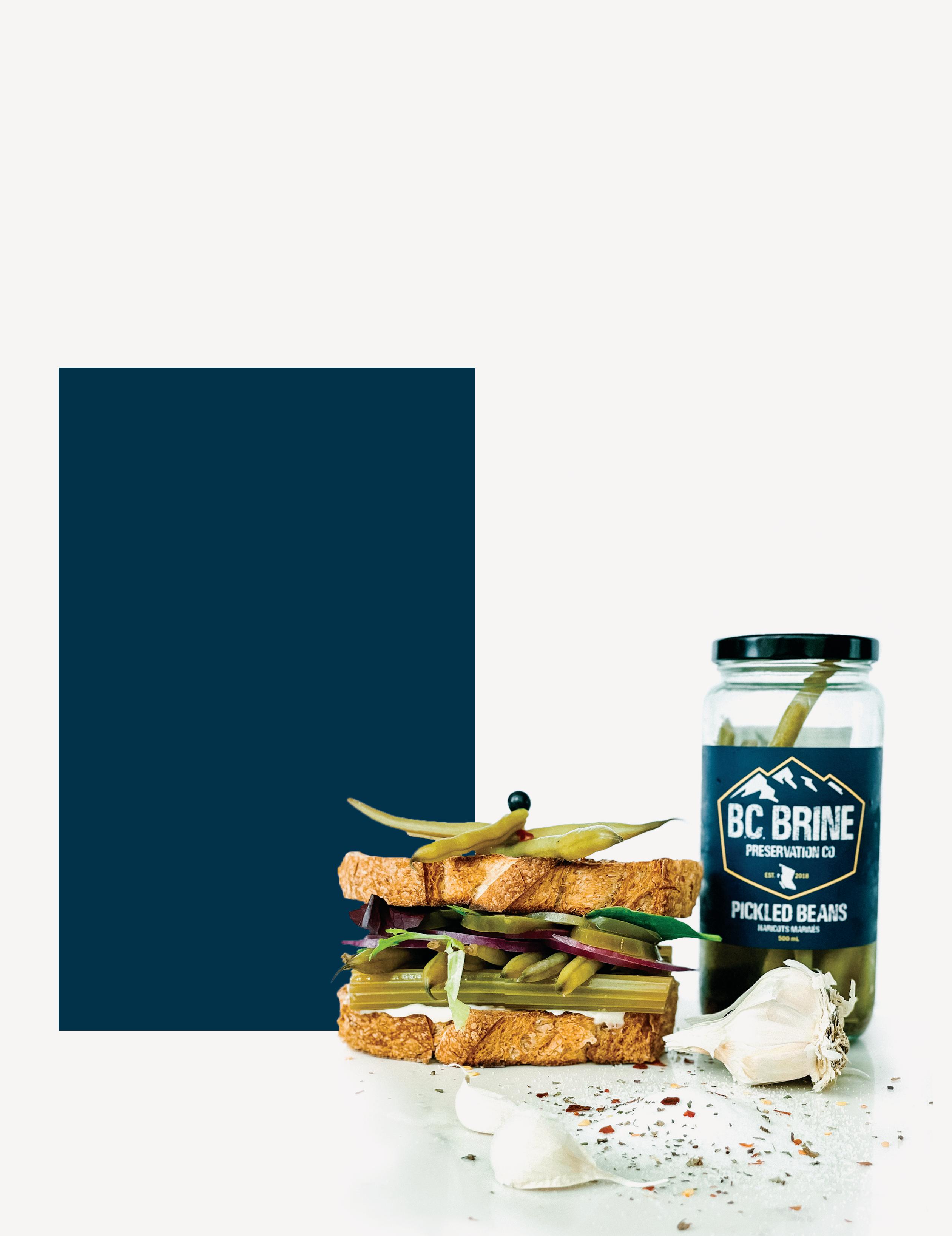
Now, pickled products are great for eating straight up. But there are endless ways to enjoy them, and we love getting creative. Here are a few suggestions:
• You can’t have a charcuterie board without pickles. (There are no exceptions with this one!)
• Add them to your favorite sandwich.
• I recently made a gin Caesar with Sheringham Gin and adorned it with an assortment of BC Brine pickled products. So yum!
• Add pickles or pickled celery in your potato or egg salad for a vinegary crunch.
• Pickles go great with peanut butter. (Don’t knock it until you try it!)
• How about using the leftover pickle juice for a marinade?
There are health benefits to BC Brine pickles, too. They’re full of antioxidants, low in calories, and contain no additives, chemical preservatives, or added sugar. Pickles also help control blood sugar and are full of probiotics, which do wonders for our gut health and immunity.
Need to taste it to believe it? Order BC
Brine pickles at bcbrine.ca. They offer free shipping on orders of 6 or more jars.
Follow BC Brine pickles at, @bcbrine
Find resources and download the new employer guide at worksafebc.com/slips-trips-falls. Help protect your workers from slips, trips, and falls
Storing tools and equipment properly, wearing the right footwear, and holding handrails are just a few steps in helping prevent workplace incidents.
41 EXPLORE BC FARMERS' MARKET - Where local food products have flourished
43
EXPLORE BC WINE - World-class wines in our own backyard
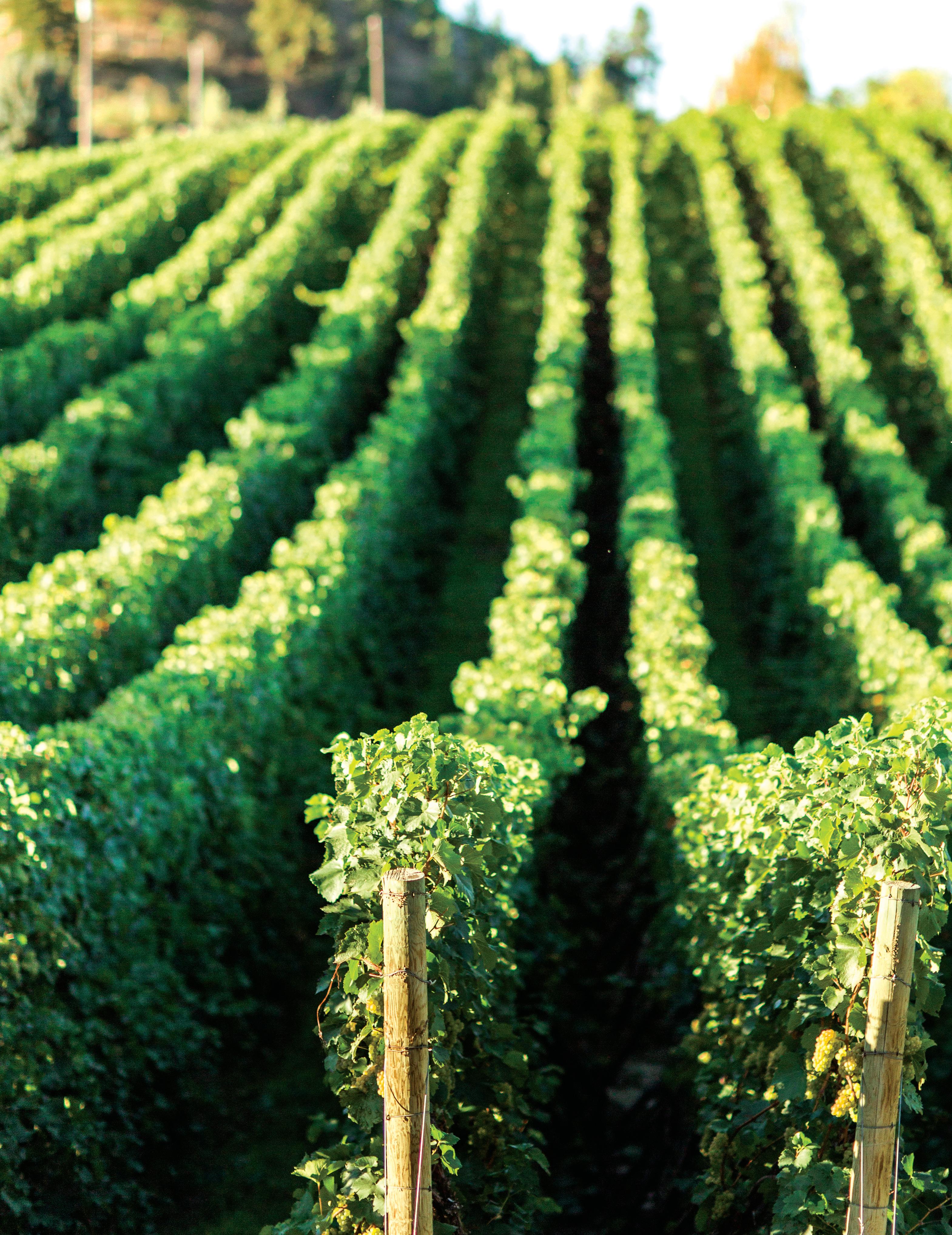
“Trends, consumer behavior, and retail has changed but ultimately at one time, it was difficult to find places where local food was sold” page 41
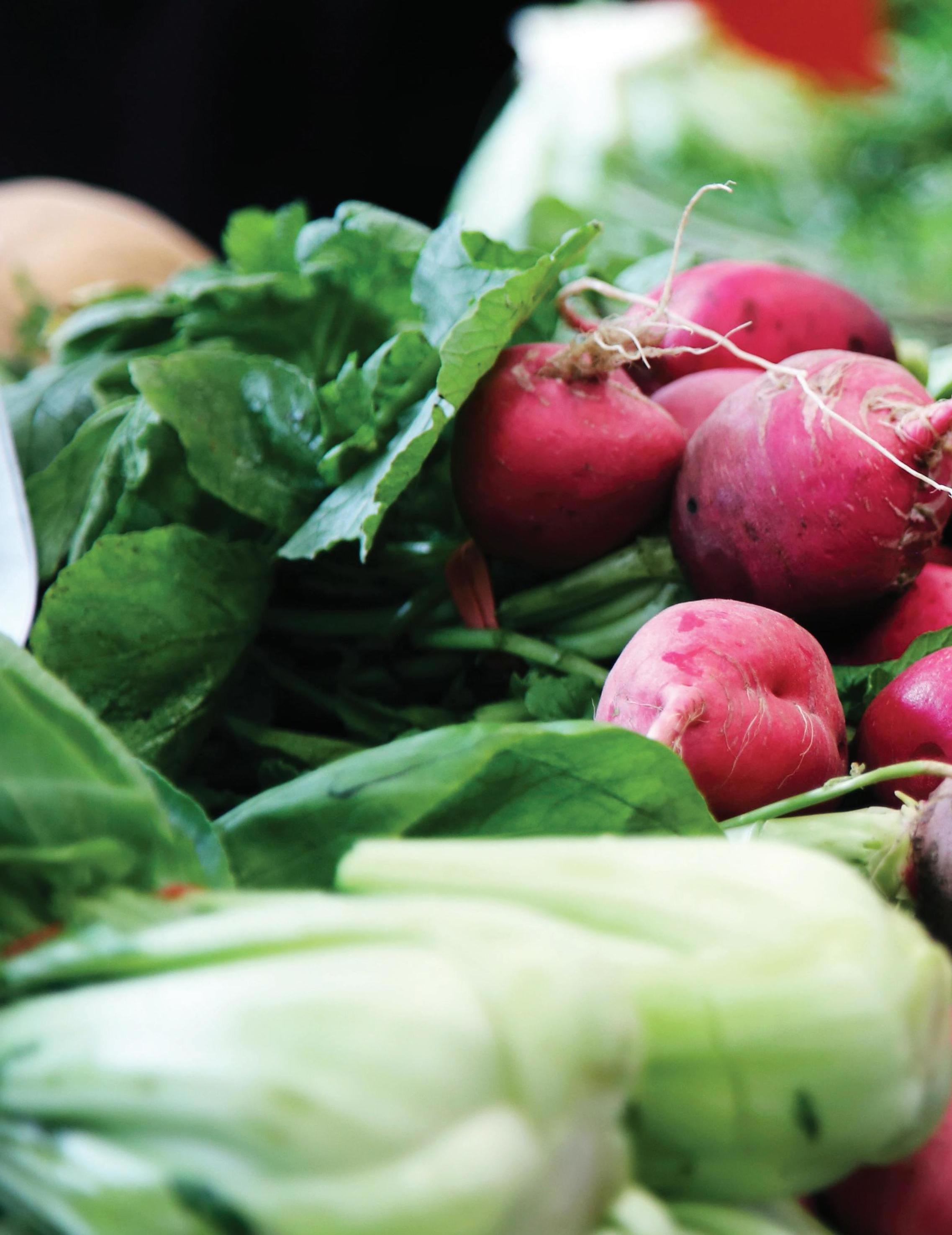
We spoke with the BC Association of Farmers' Markets and Wine Growers British Columbia to learn more about what they do in the agritourism space. From advocating to supporting their industry, they're both associations that are passionate about BC products, farmers, and businesses.
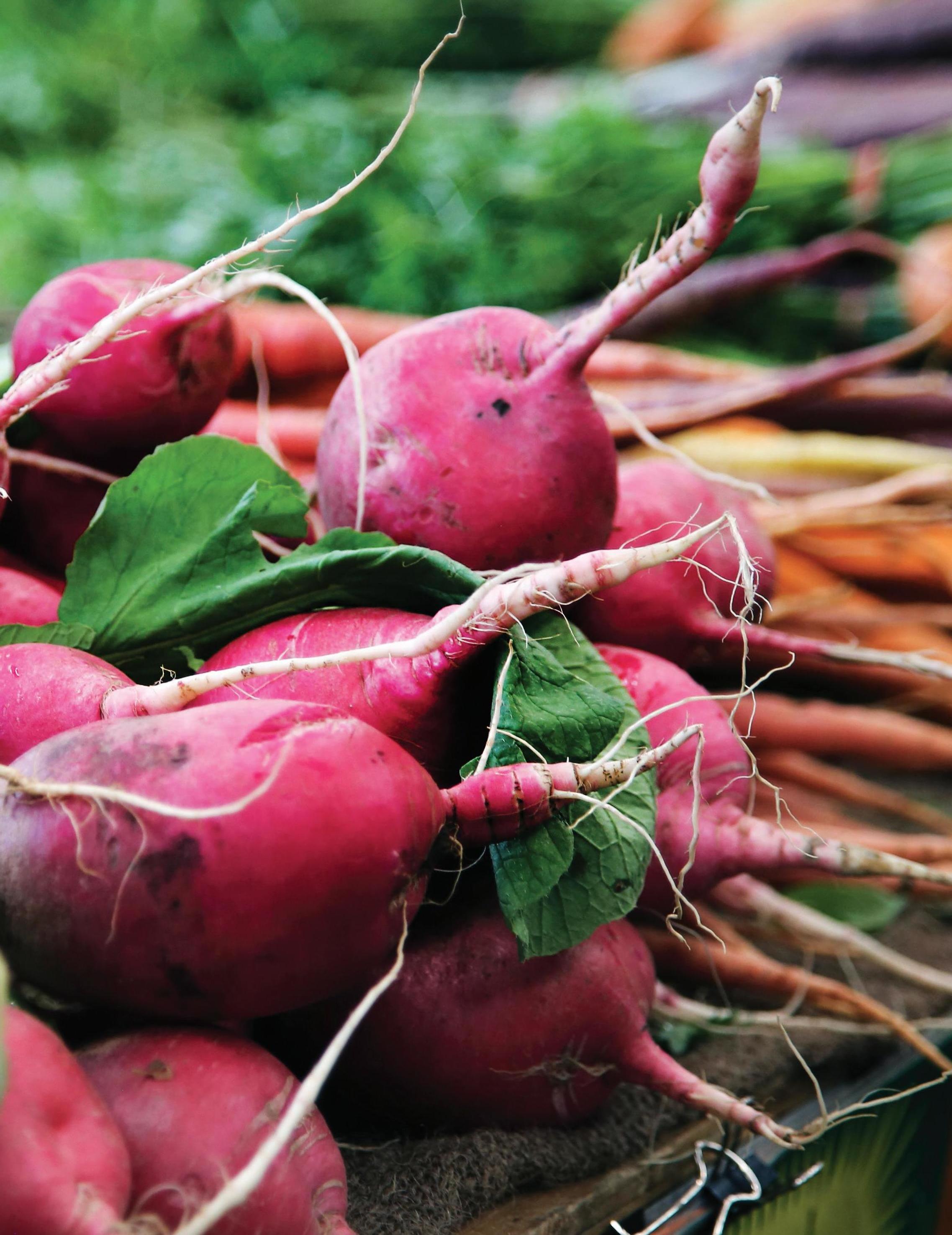
As more people gravitate towards local food products, farmers market’s throughout BC have been a hot spot for finding the newest, most innovative items on the market. The BC Association of Farmers’ Markets, also referred to as BCAFM, has watched the industry grow and evolve for over 20 years. They are a registered BC society that represents over 145 member farmer markets across the province. BCAFM is passionate about local food and helping BC markets, farmers, and businesses grow and thrive.
“What distinguishes our farmer markets is that they are 100% grow, make, bake, authentic markets with shared values and provide a direct channel from producer to consumer,” says Heather O’Hara, BCAFM Executive Director. “From all shapes and sizes of markets, small to large and rural to urban, we help support, develop, and promote member BC farmers’ markets.”
Back in 2000 when BCAFM was created, local food products weren’t as easy to come by. Farmers’ markets were places that blossomed the initiative of supporting local, that we love today. “Trends, consumer behavior, and retail has changed but ultimately at one time, it was difficult to find places where local food was sold,” says Heather, “An advantage of farmers’ markets is that they offer a direct sales channel to customers, cutting out the middle man to create a more profitable solution for local producers.” The association values food vendors of all kinds; farmers, food processors, and ready to eat vendors alike who they view as the most innovative agri-food entrepreneurs in our province. “We love the fact that a lot of them have started at the farmers market in launching and growing their business. We love that some of them continue to grow their business and stay at the farmers markets and love that some have gone on to other places, but often they started at the market,” says Heather, “Farmers markets are so important as a gateway to their business success.”
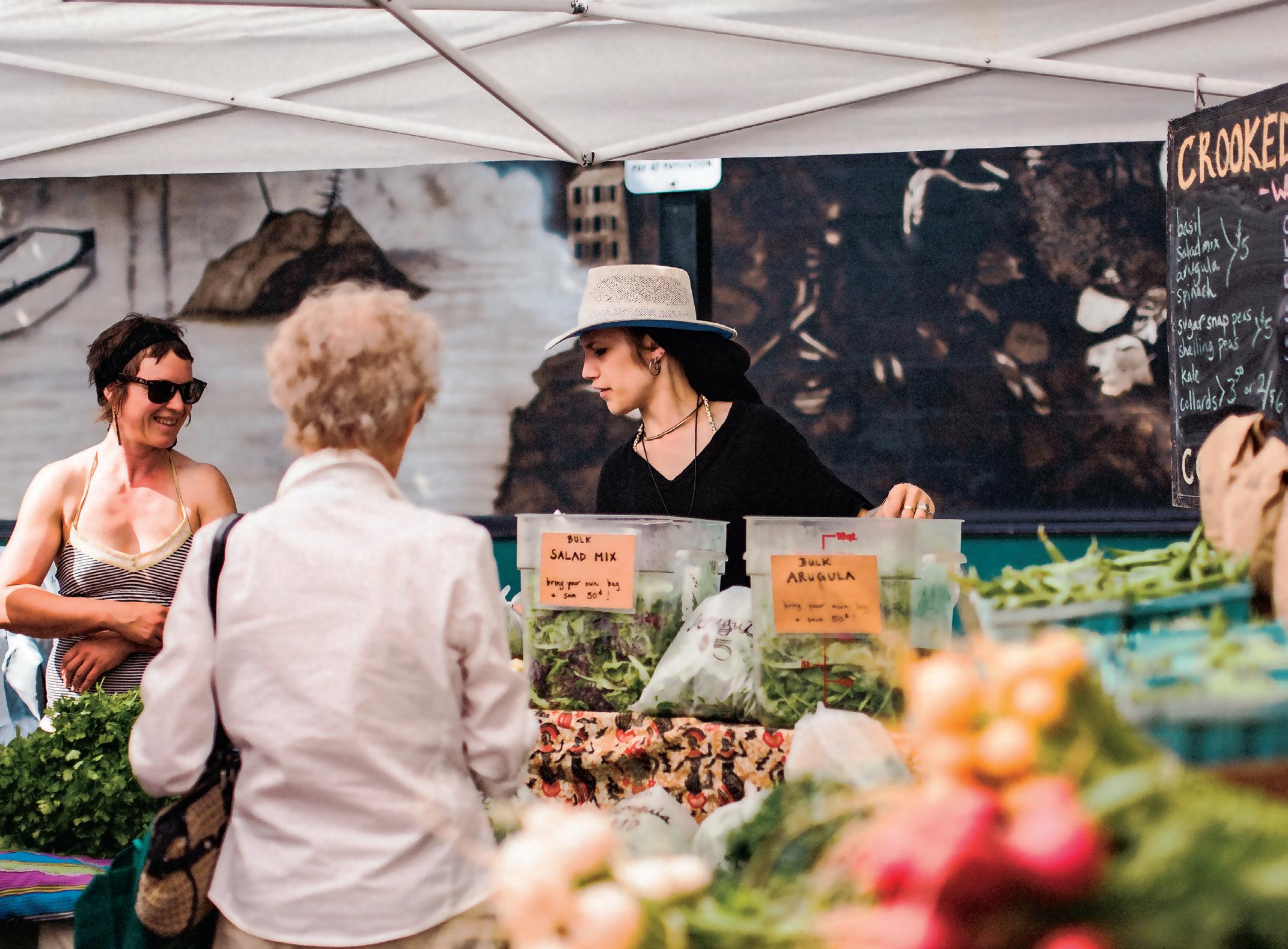
In spring 2020 BCAFM launched the BC Farmers Market Online store initiative in response to the COVID pandemic. Some markets now have an online e-commerce component in addition to their in-person markets. By visiting the ‘BC Farmers’ Market Trail’ online, you can find a market as well as details including when they’re open, parking information, whether they allow pets, and if they have an online market. BCAFM works closely alongside Destination BC, as a sector partner, who supported the development of the BC Farmers’ Market Trail.
At the start of the COVID pandemic, the PHO Dr. Bonnie Henry designated farmers’ markets as an essential service to purchase food. Farmers’ markets have modified their markets on the ground to follow all ongoing COVID restrictions and protocols to ensure the safety of the public. From farmers’ markets in Northern BC, the Kootenays, Haida Gwaii, the Carbioo, the Lower Mainland, and everywhere in between – these markets are a great place to find fresh food, prepared foods, and local artisan, all while supporting local businesses and the economy.

Looking for a farmers' market? bcfarmersmarkettrail.com is a guide to 145+ authentic farmers' markets across British Columbia.
Explore the diverse regions of BC, and learn about the passionate growers, makers and bakers you’ll find at farmers’ markets along this Trail.
Learn more about the BC Association of Farmers’ Markets and their members at bcfarmersmarket.org
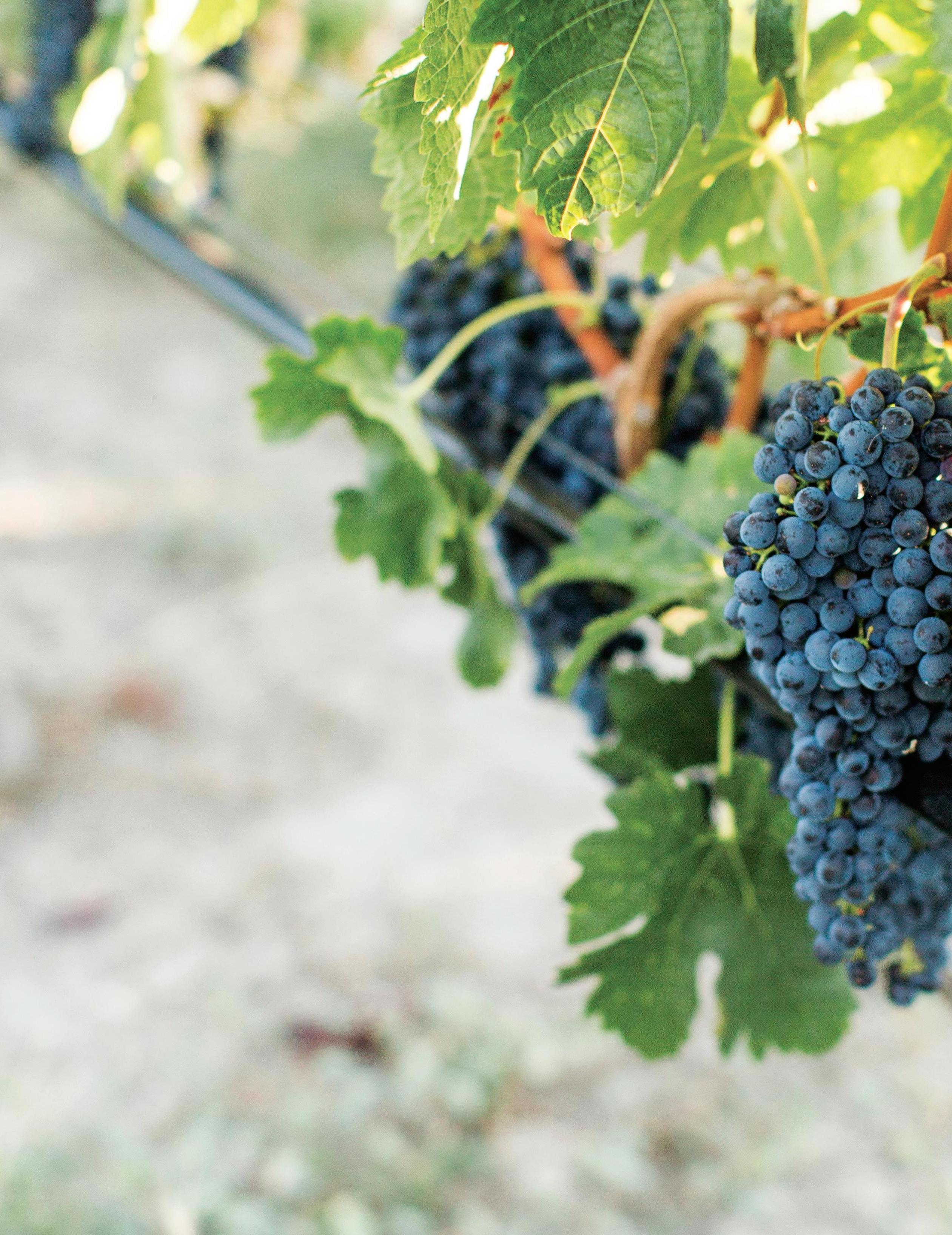
In 1990, Wine Growers BC (WGBC [formerly the BC Wine Institute]) along with the BC Vintners Quality Alliance was created by a small group of pioneering winemakers and grape growers. WGBC is a volunteer, membership-based, not for profit society. Their mission is to advocate for BC wineries dedicated in producing 100% BC grape wines. The organization represents all wineries in British Columbia to grow the premium market share for the Wines of British Columbia, while driving awareness of BC’s world-class wines and tourism product - currently the industry draws 1,000,000 visitors with $600 million in tourism and tourism employment.
The BC wine industry contributes 2.8 billion annually to the BC economy.
• WGBC has 180 winery members representing 94% of BC Vintners Quality Alliance (VQA) wine sales in British Columbia.
• BC VQA Wine continues to be the second-best selling category in BC 929 vineyards with more than 10,499 acres of planted land (wineries and independent growers)
• 80+ grape varieties produced BC’s wine industry has grown from just 19 grape wineries in 1990 to more than 284 today (as of January 2020).

This summer, if the COVID-19 safety restrictions allow us to do so, let's explore BC and enjoy a taste of 100% BC wine. Pack up the car and hit the road! There are more than 10,499 acres of vineyards in British Columbia with nine geographical indications: Okanagan Valley, Similkameen Valley, Fraser Valley, Vancouver Island, the Gulf Islands, Thompson Valley, Lillooet, Shuswap, Kootenays and beyond. Here are some touring tips from Wine Growers BC to kick start your wine tour planning.
Wine and winding roads don’t go together. If your hand is holding the glass, make sure a designated driver is holding the wheel.
Book in advance for tours and tastings, especially if you’re travelling in a group. Some wineries are seasonal, others have irregular hours and they all want you to enjoy your visit.
Wine can spoil and boil over in a hot trunk. Bring along a cooler to make sure the wine you like at the tasting is the wine you take home.
Many wineries have restaurants – take advantage of one to enjoy a spectacular meal. If you’re more of a do-it-yourself type, bring along a picnic lunch. Some wineries have picnic areas –buy a bottle of wine and enjoy the view.
Whether you are touring some of BC’s renowed wineries or simply sipping at home, remember to savour the moment and enjoy the fruits of our labour!
Of course, things look different now and some COVID restrictions may alter your plans. Download the Wines of BC Explorer App to get up-to-date information on BC wineries operating hours and elevated winery experiences. It's also best to call ahead and find out exactly what protocols and procedures the winery may have in place before visiting.

Whether we are lucky to be back to travelling this great province of ours this summer or not, you can still explore all that BC has to offer with WGBC’s Wines of BC Explorer App.
Use the app to do the taste test and find out what wines are recommended for you, research wineries by region or find the perfect wine pairing for your summer meal that can be shipped directly to your door.

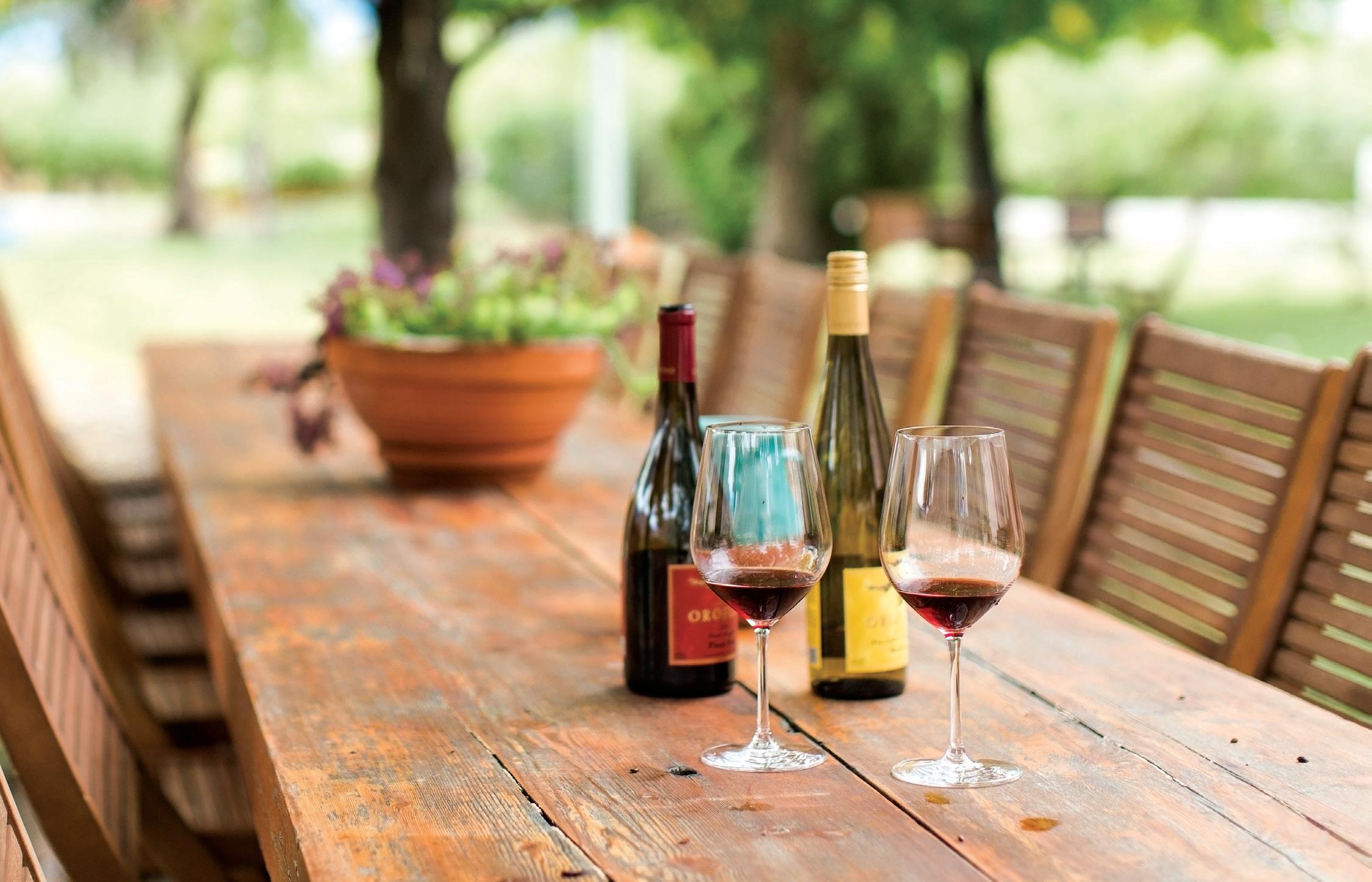
Makes enough for 4 salads
Try out this tasty salad for your next dinner. Courtesy of Natasha Schooten – Terrafina at Hester Creek Winery. This recipe can also be found in The Butcher, The Baker, The Wine & Cheese Maker – An Okanagan Cookbook
SALAD
2 heirloom tomatoes, cut into quarters
1 ball (175 g) buffalo mozzarella, torn into 12 pieces
BALSAMICO REDUCTION
Yield: ¼ cup
INGREDIENTS
¾ cup (200 mL) of red wine vinegar (1 bottle)
1 ½ cup (400 mL) of white balsamico vinegar (2 bottles)
4 cups (1 L) port
2 tbsp (30 mL) honey
METHOD
1. Put both the vinegars in a saucepot and bring to rapid simmer until the liquid is reduced by one third.
2. Add the port and keep reducing at rapid simmer rate.
3. When liquid is reduced by half, add in the honey and reduce until syrup consistency.
4. Store at room temperature until ready to use.
To serve: Use a pastry brush, “paint” a line of reduction across the bottom of each plate. Add two pieces of tomato and three pieces of buffalo mozzarella, arranging as you like.
Top with a nice kosher salt and a little of the canola oil, then finish with the balsamico reduction.
BC PRODUCERS TO LOOK FOR
Golden Ears Cheesecrafters (Buffalo Mozarella)
KB Honey Family, Elias Honey Ltd. (honey) bcfarmersmarkettrail.com (produce)
Oliva's (White Balsamic Vinegar)
Shop the full line up of oils & vinegars on their online shop, oliviasonline.ca
For more pairing recipes or more information on WGBC visit winebc.com
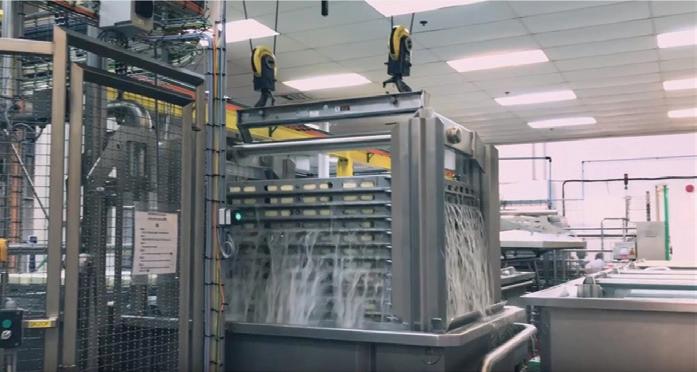
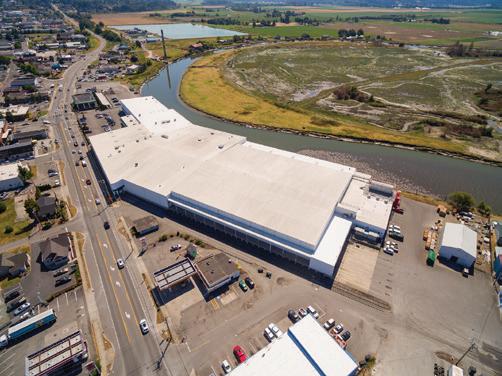
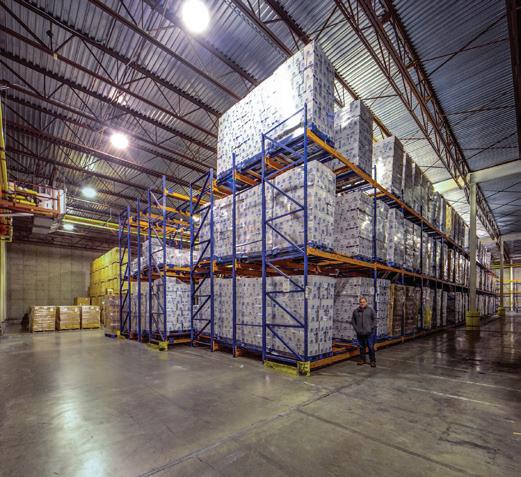
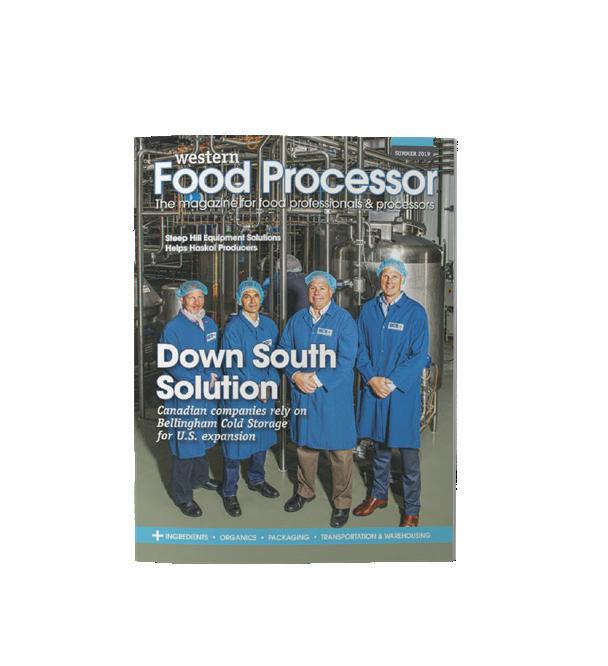
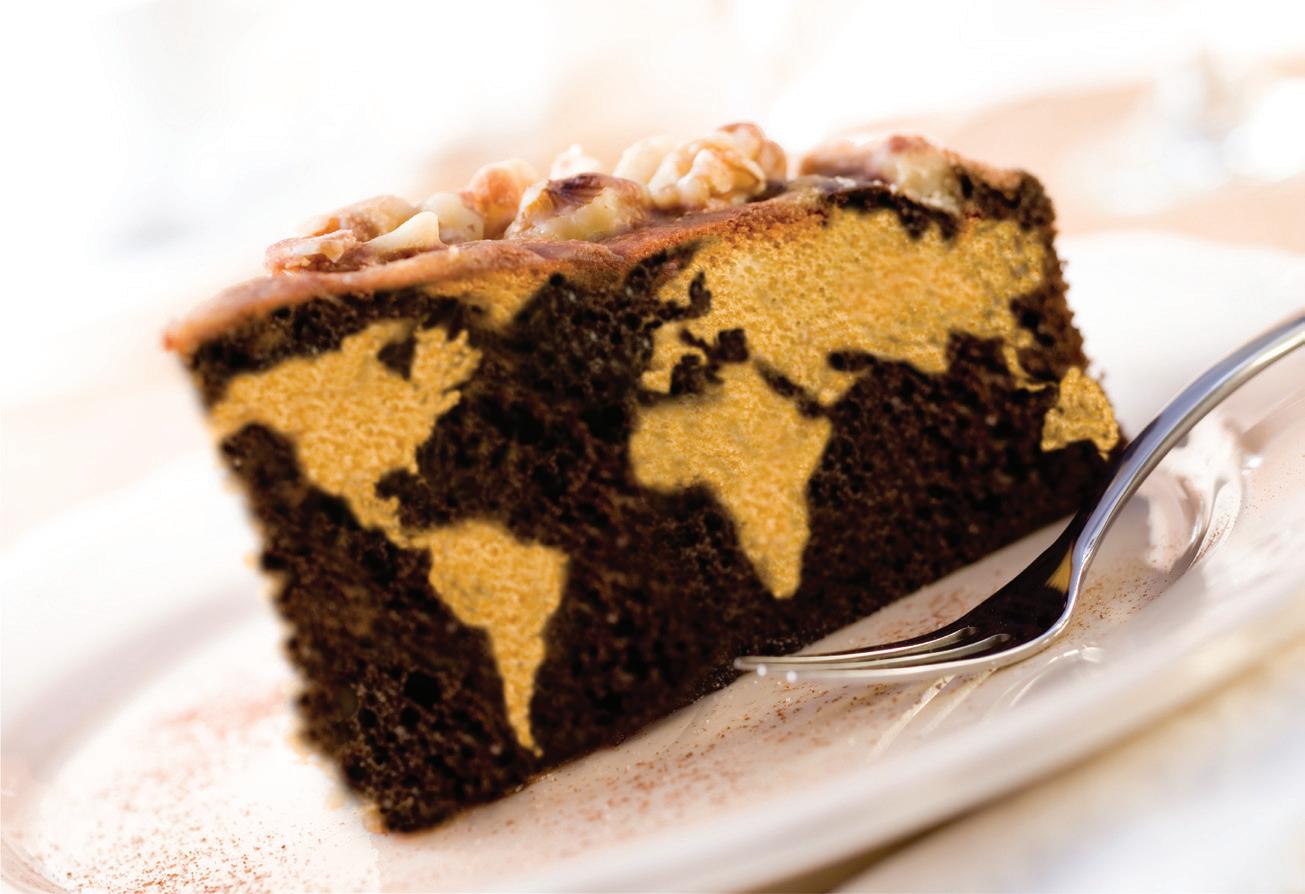
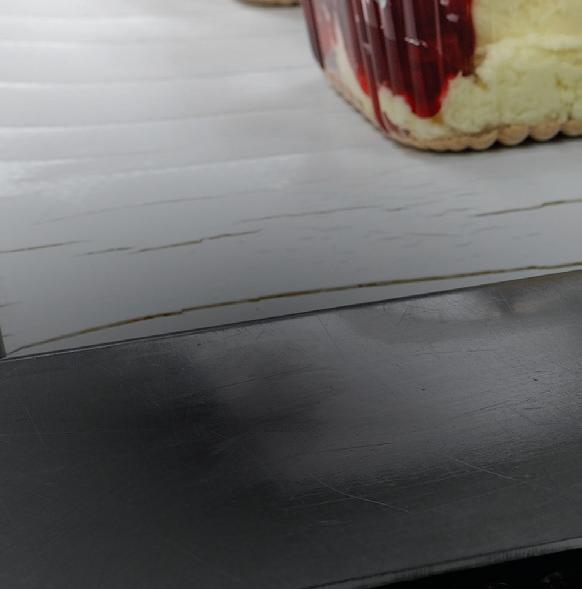

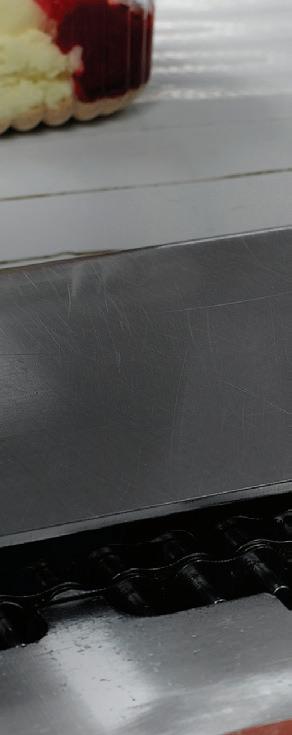

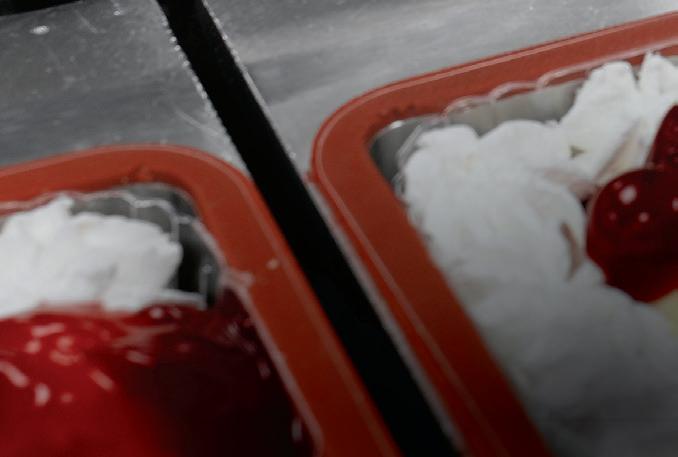
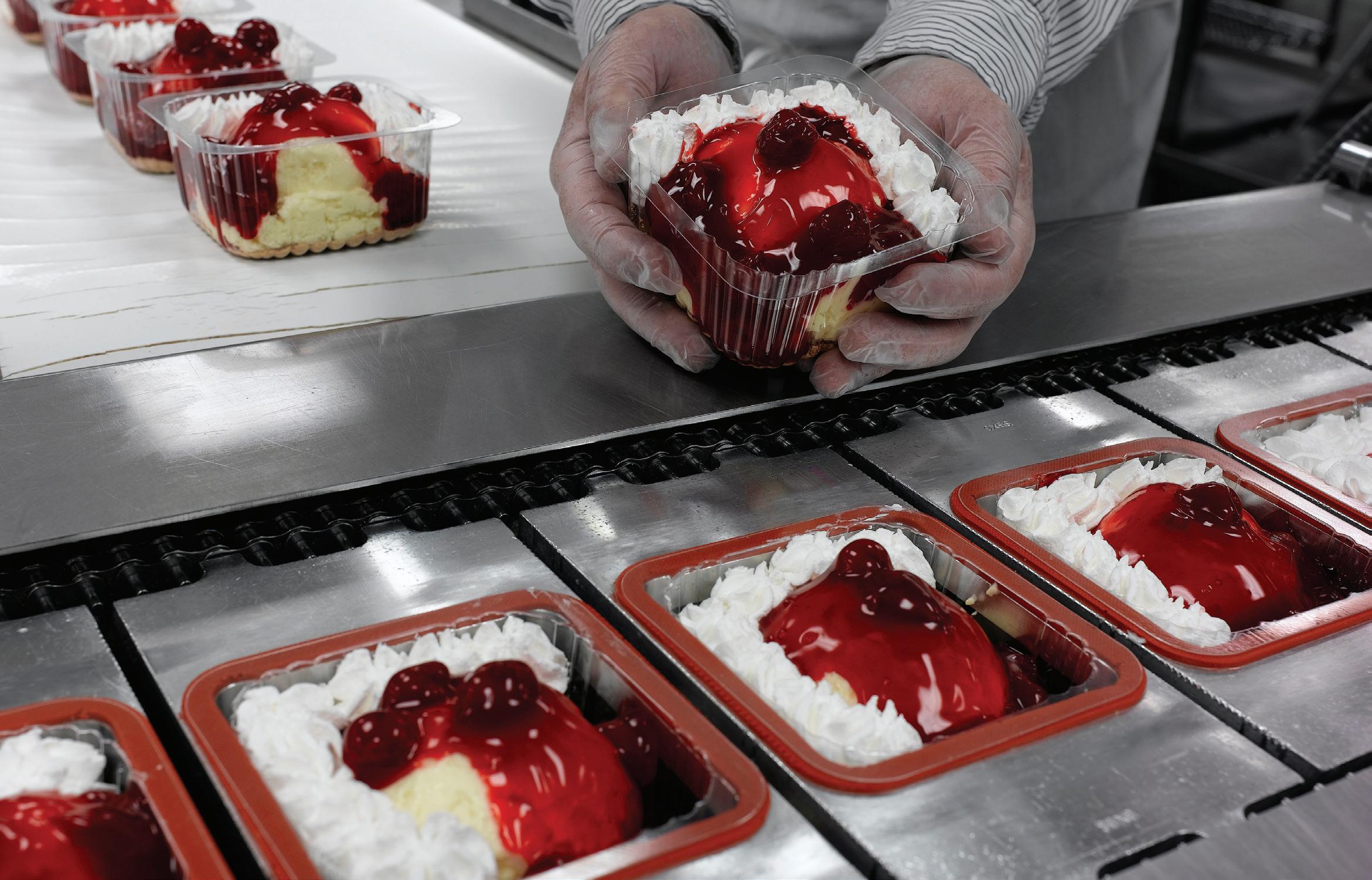
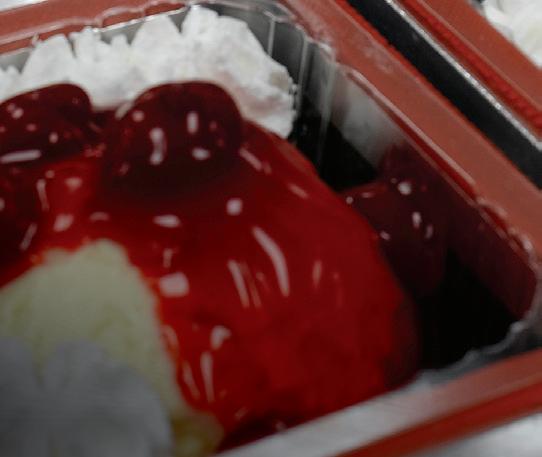



Kathrin Matadeen
District Vice President 778-996-3994
Kathrin.Matadeen@td.com
TD Fraser Valley Commercial Banking Group
Steve Mo Vice
778-239-2196
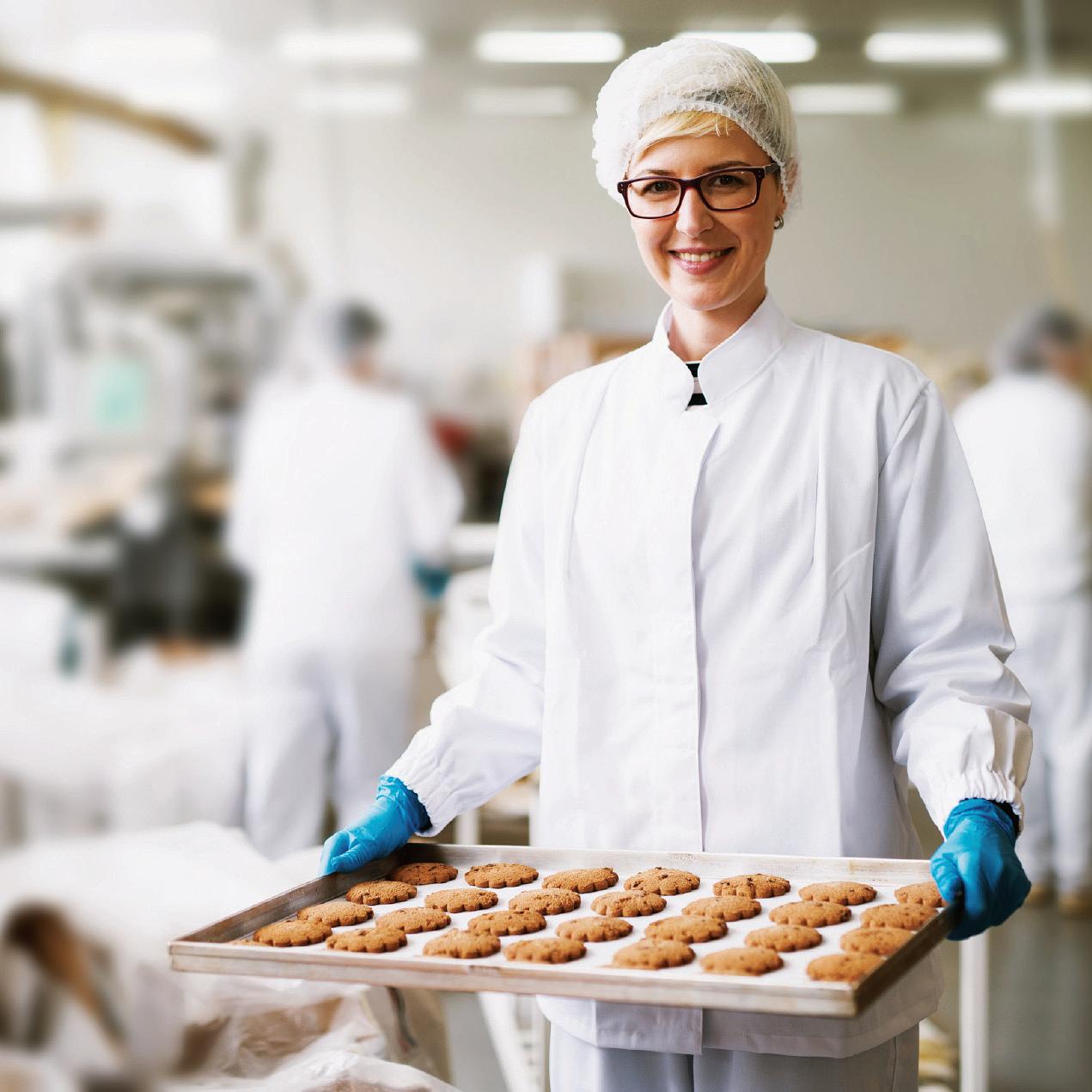


Mitko.Ivanov@td.com TD Fraser Valley Commercial Banking Group


